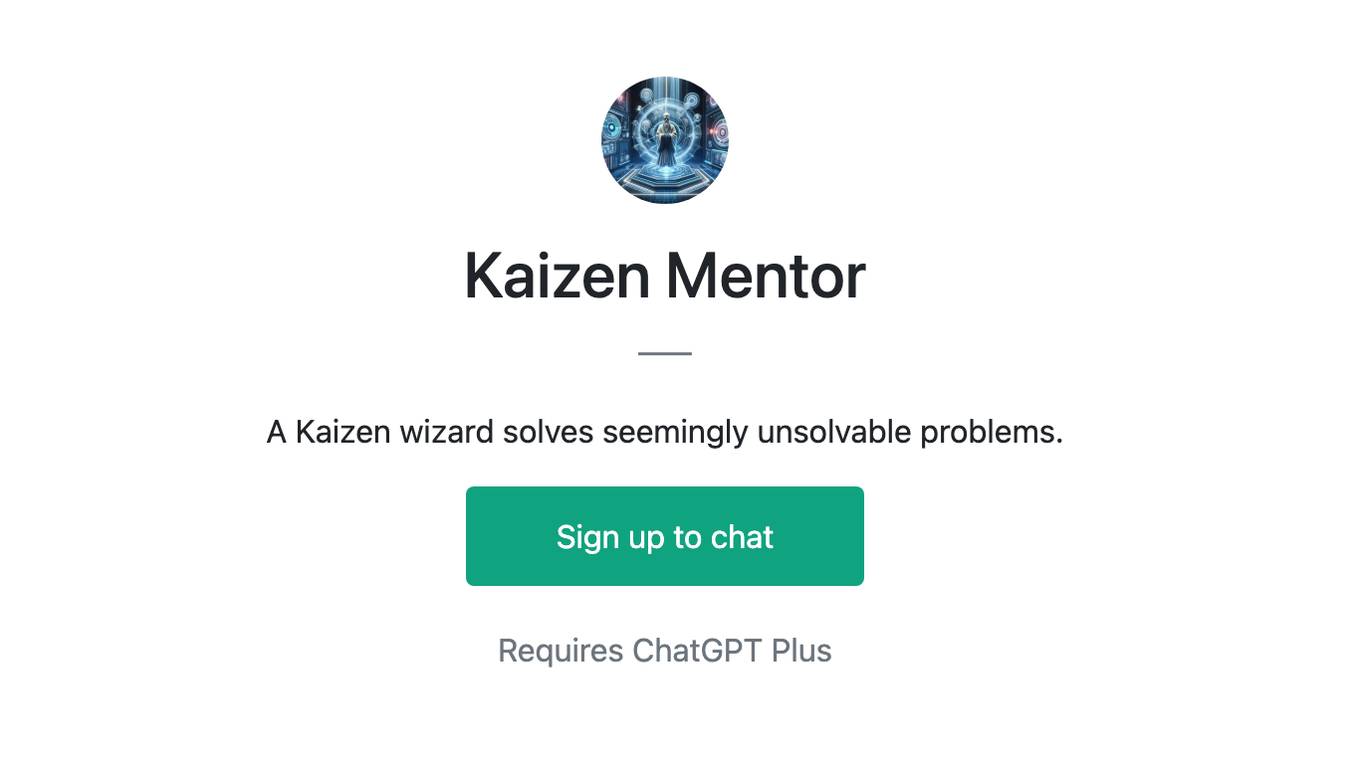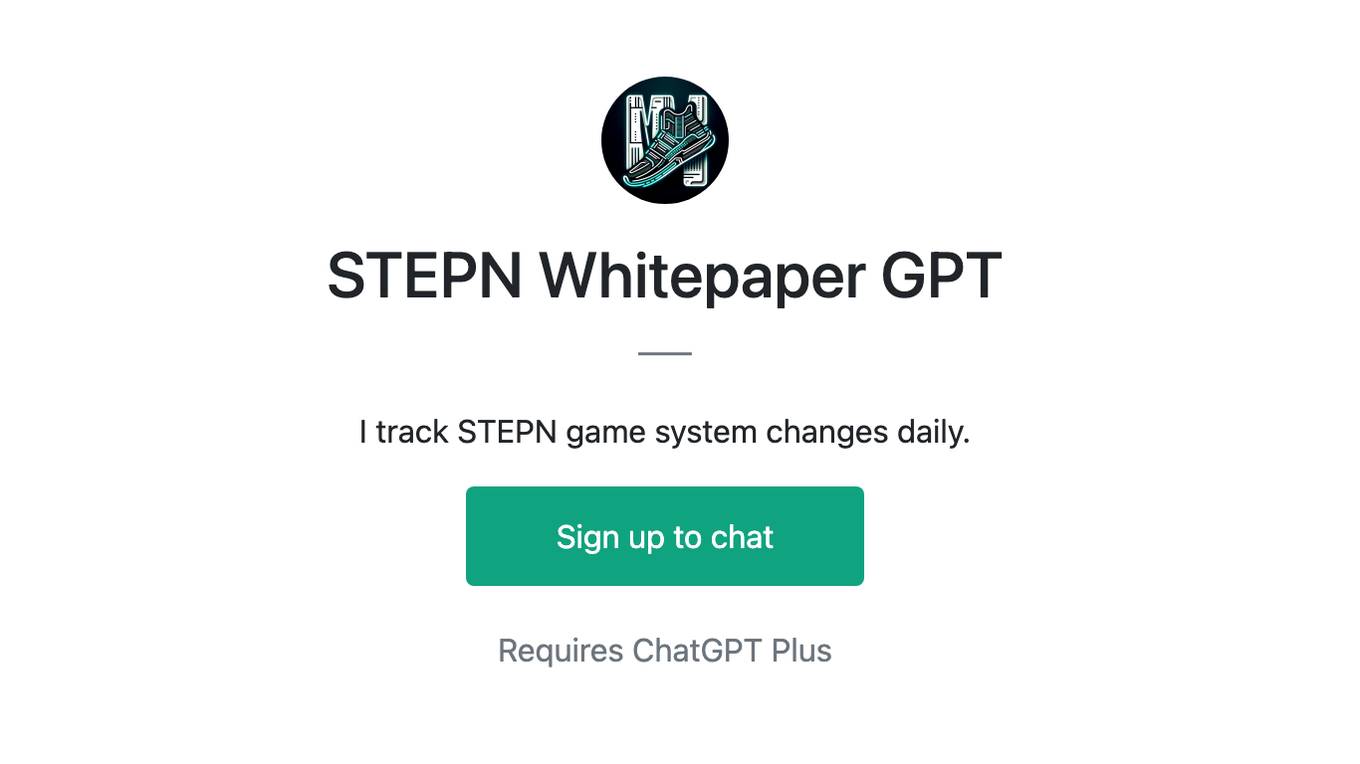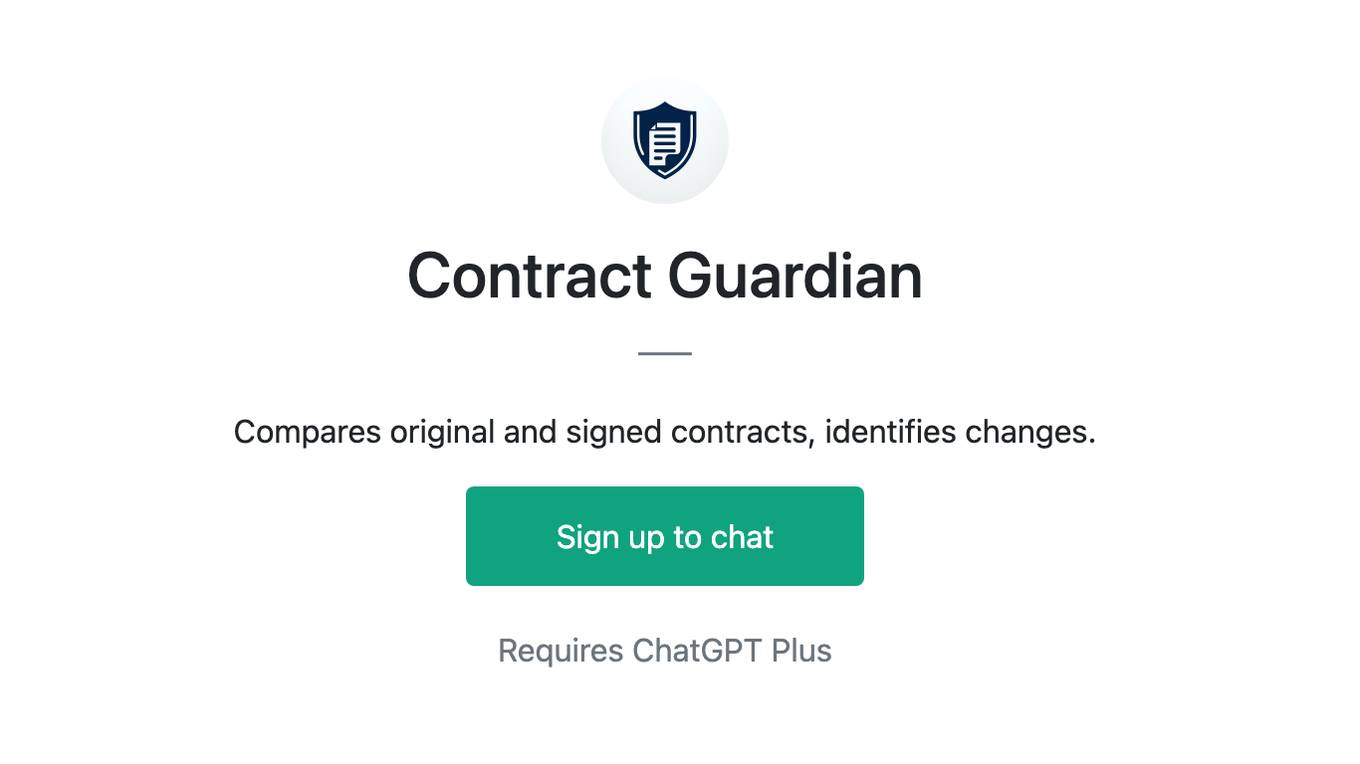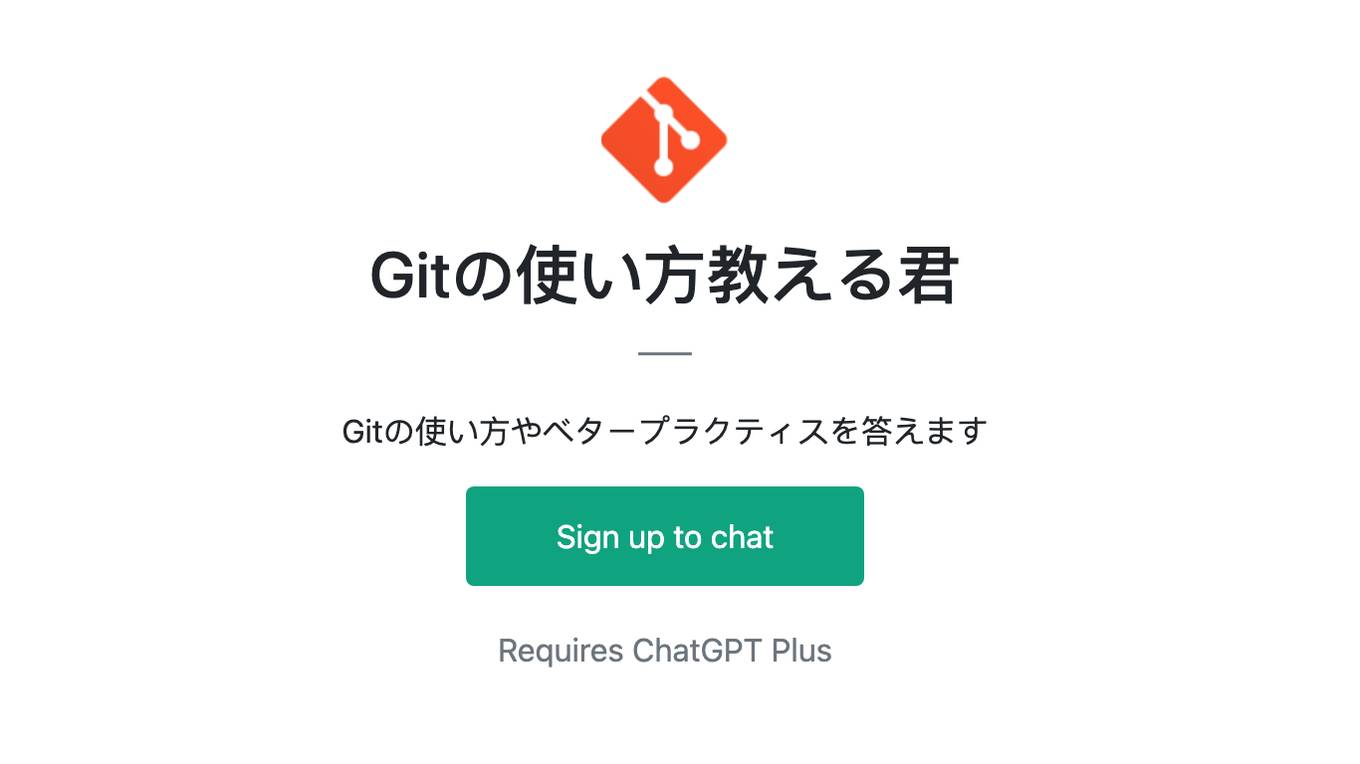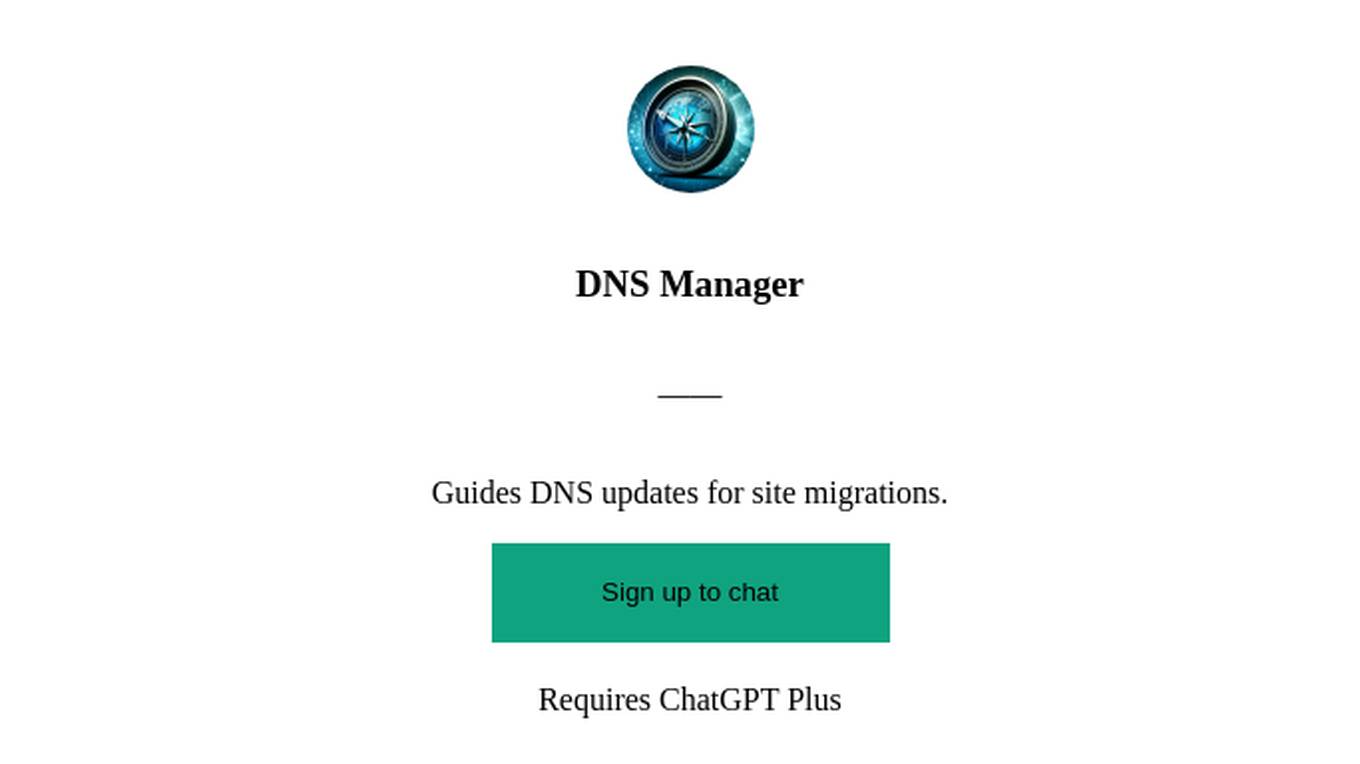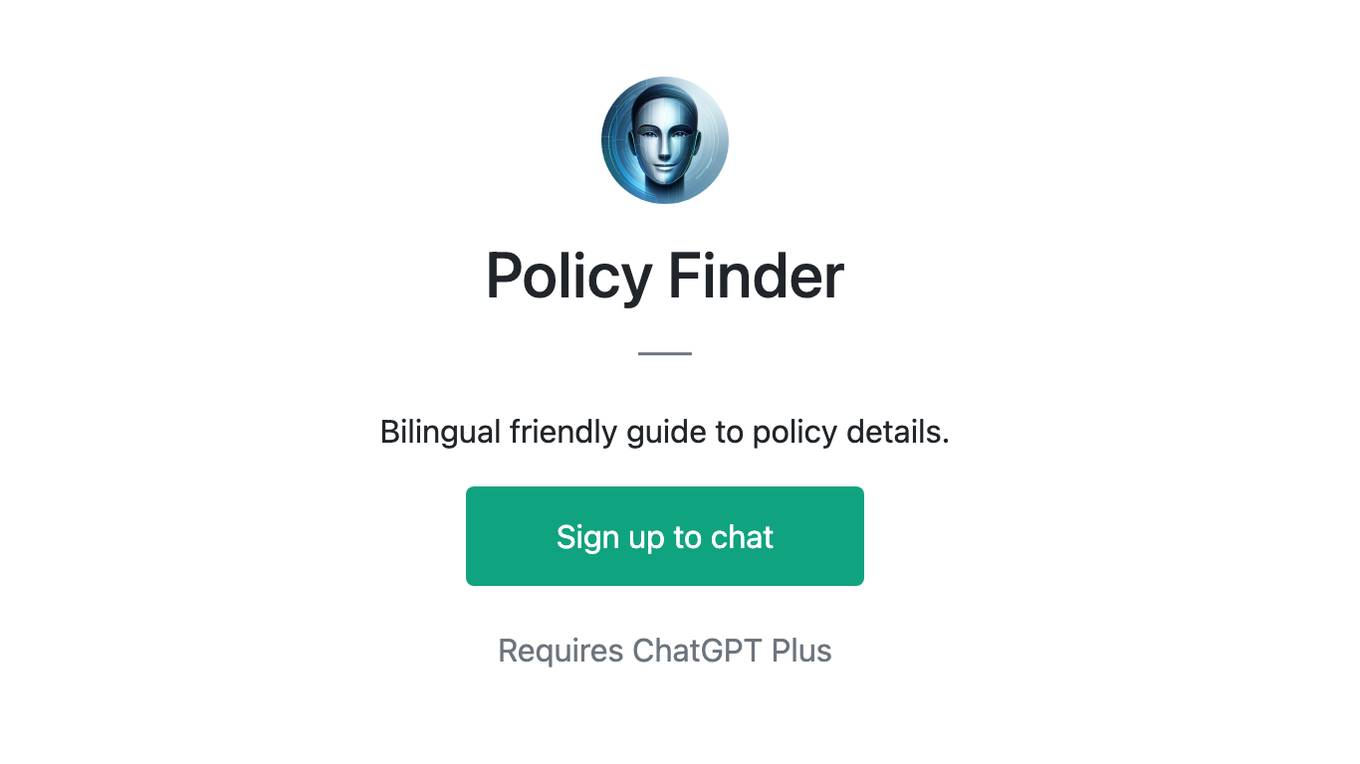Best AI tools for< Manage Change >
20 - AI tool Sites
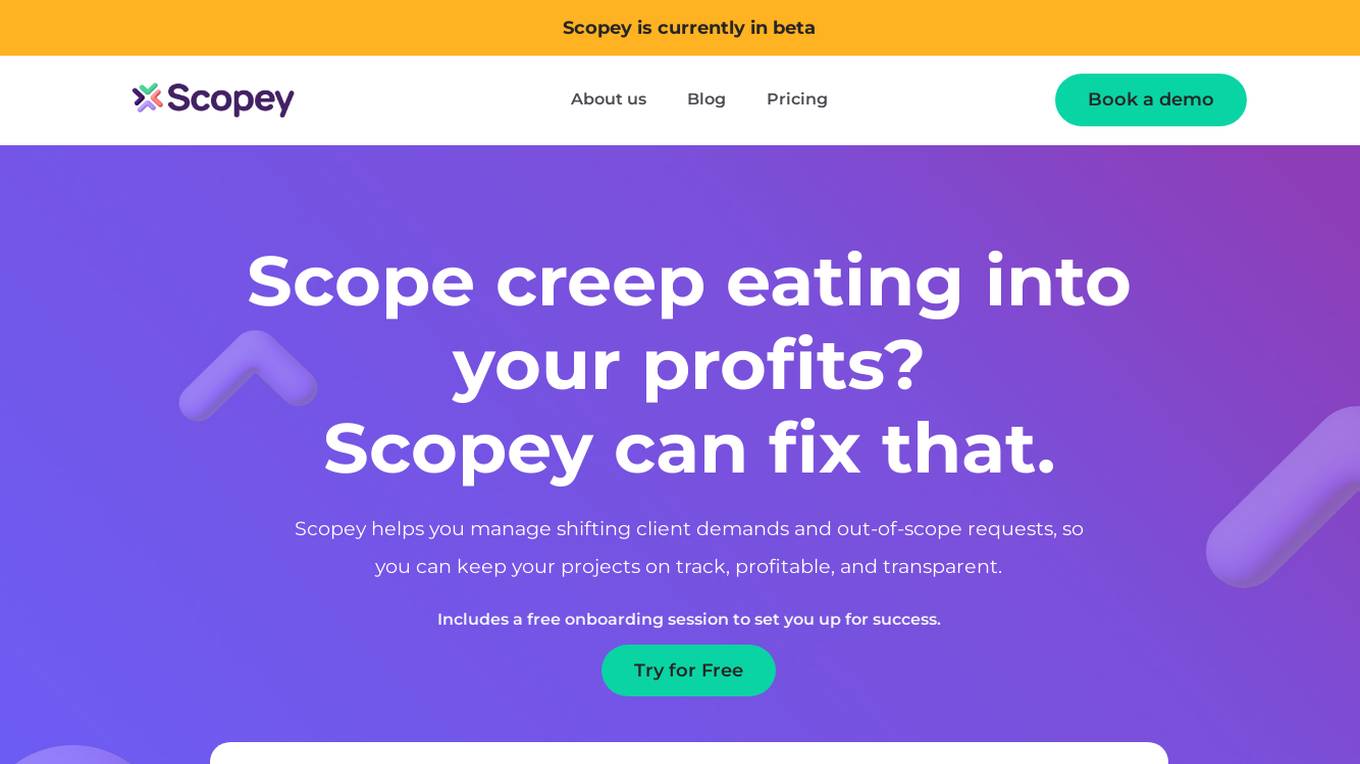
Scopey
Scopey is an AI-powered scope management tool designed to help businesses manage shifting client demands and prevent scope creep. It offers real-time tracking of project changes, detailed scopes of work creation, seamless integration with team workflows, and upselling opportunities. Scopey aims to save time, increase revenue, ensure transparency, stop scope creep, and boost project success effortlessly.

Krista AI
Krista AI is a conversational automation platform that offers a range of AI agents to help organizations automate their business processes using everyday language. The platform aims to solve issues related to SaaS sprawl and agent sprawl by unifying systems, automating workflows, and simplifying AI implementation. Krista provides a no-code interface for building automation, offers various AI types for different tasks, and ensures data security with role-based access control. The platform is designed to streamline communication, improve decision-making, and enhance productivity across departments.

Serviceaide
Serviceaide offers a complete product portfolio of software solutions. AI-powered solutions deliver unmatched service across IT, business departments, and customer support. Serviceaide focuses on helping customers drive various digital process transformations leveraging automation and AI.
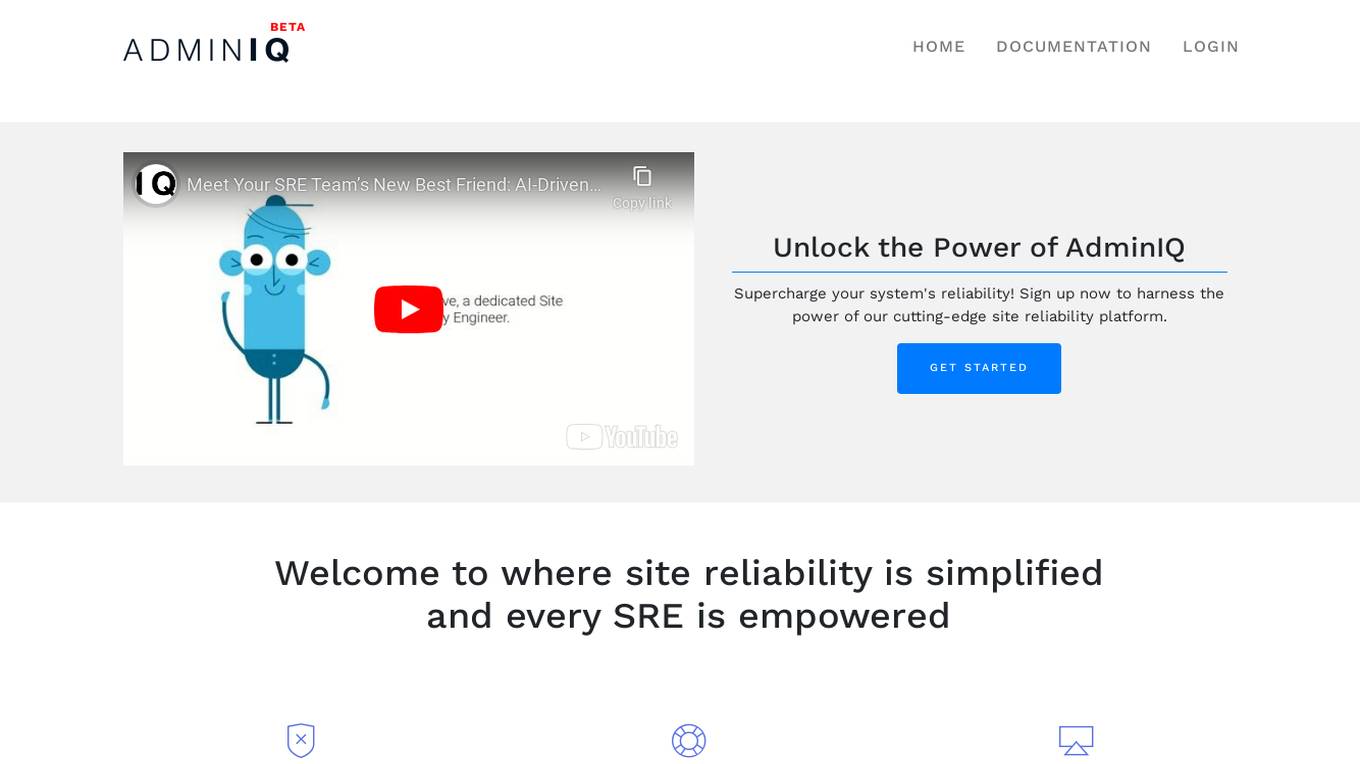
AdminIQ
AdminIQ is an AI-powered site reliability platform that helps businesses improve the reliability and performance of their websites and applications. It uses machine learning to analyze data from various sources, including application logs, metrics, and user behavior, to identify and resolve issues before they impact users. AdminIQ also provides a suite of tools to help businesses automate their site reliability processes, such as incident management, change management, and performance monitoring.
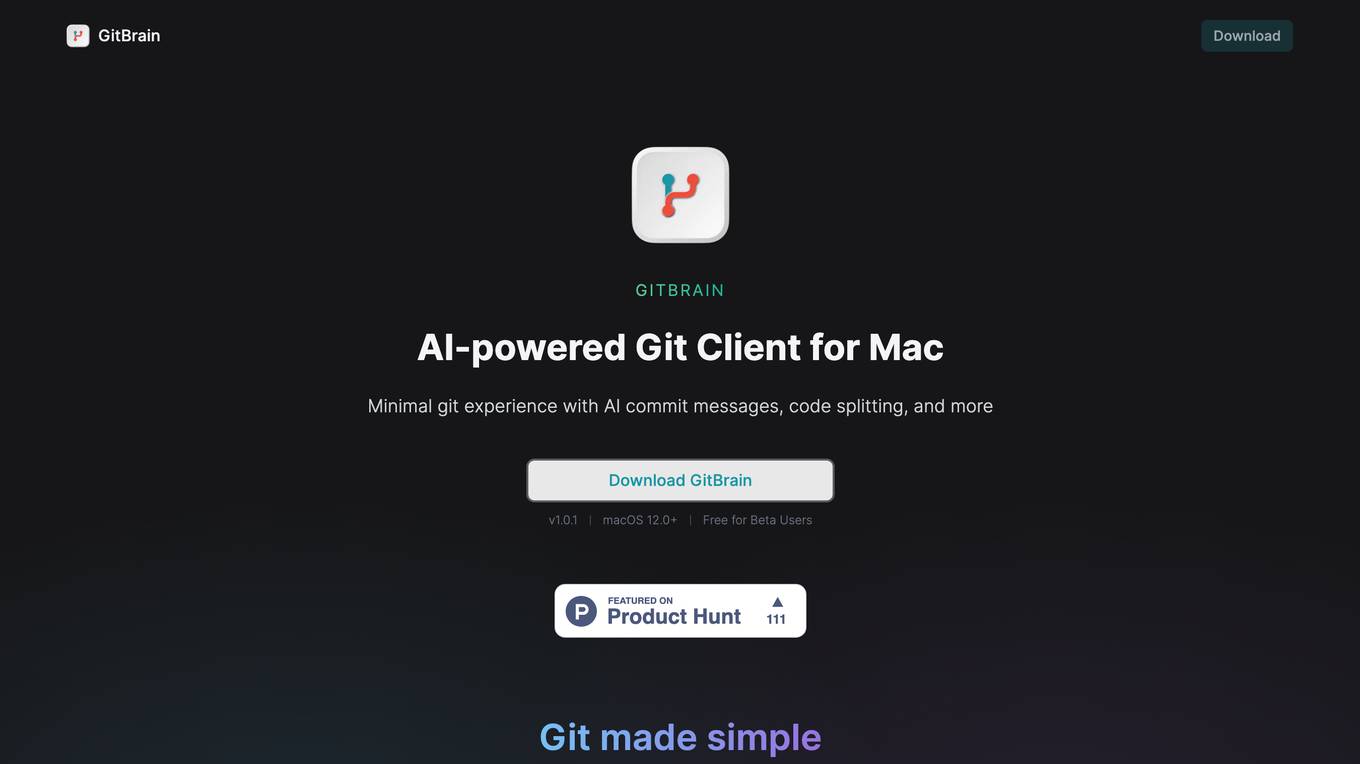
GitBrain
GitBrain is an AI-powered Git client designed for Mac users to simplify and enhance their Git workflow. It offers features such as AI commit messages, code splitting, self code review, auto-detection of projects from favorite IDEs, and a keyboard-friendly design. The application aims to make developers more productive by intelligently handling Git operations and providing a seamless user experience. GitBrain is optimized for Mac performance with a native UI and offers light & dark mode themes for customization.
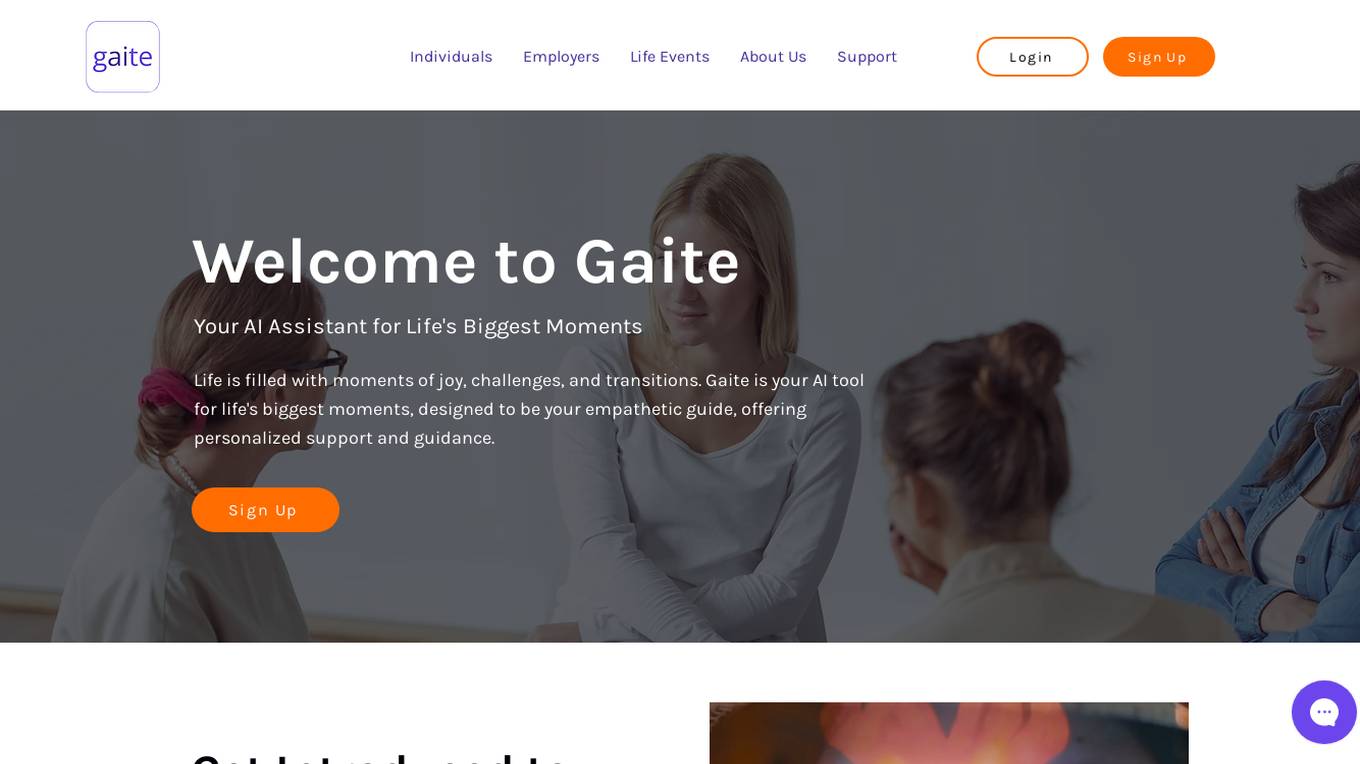
Gaite
Gaite is an AI tool designed to assist individuals in managing life's biggest moments. It offers personalized support and guidance for various life events such as finding care for loved ones, planning for retirement, managing career changes, and navigating loss. Gaite leverages AI to provide curated insights, personalized support, and actionable steps to help users seamlessly integrate technology with life for holistic well-being and success.
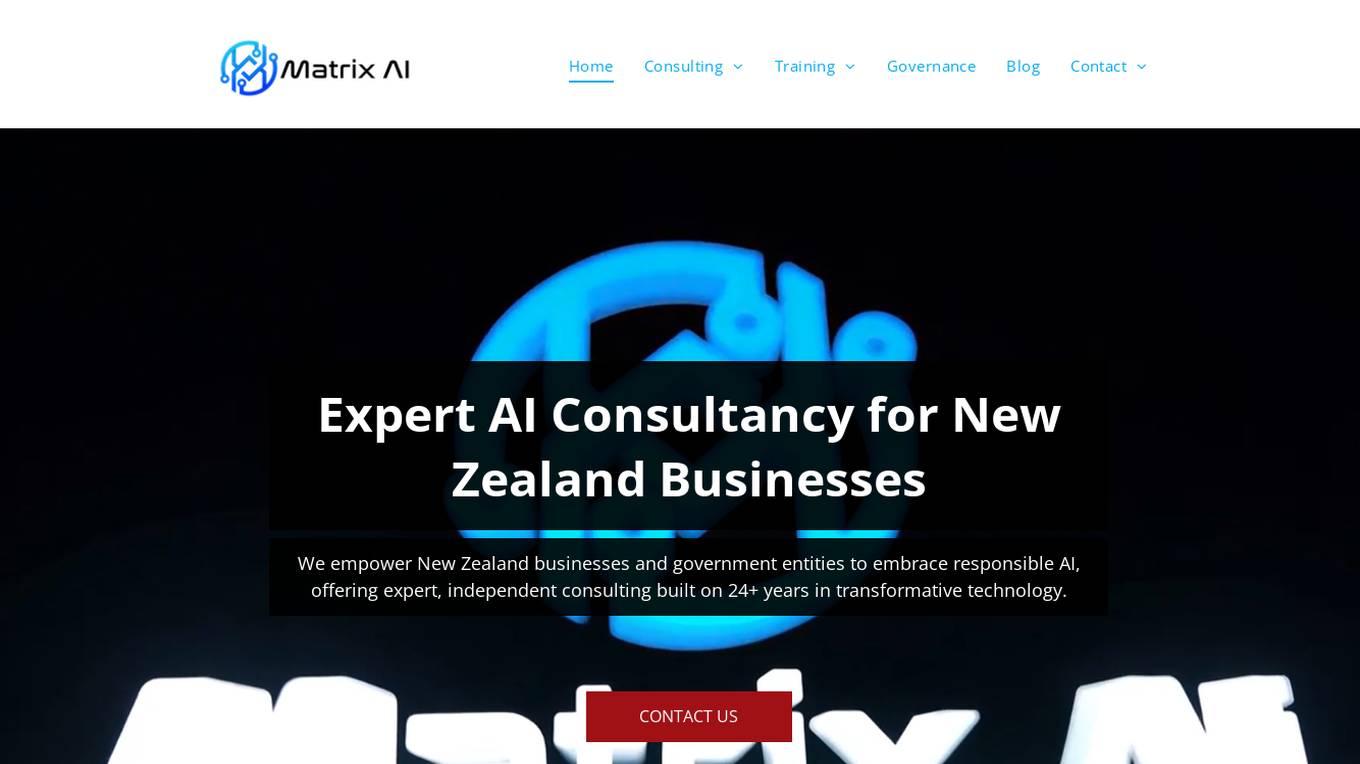
Matrix AI Consulting Services
Matrix AI Consulting Services is an expert AI consultancy firm based in New Zealand, offering bespoke AI consulting services to empower businesses and government entities to embrace responsible AI. With over 24 years of experience in transformative technology, the consultancy provides services ranging from AI business strategy development to seamless integration, change management, training workshops, and governance frameworks. Matrix AI Consulting Services aims to help organizations unlock the full potential of AI, enhance productivity, streamline operations, and gain a competitive edge through the strategic implementation of AI technologies.
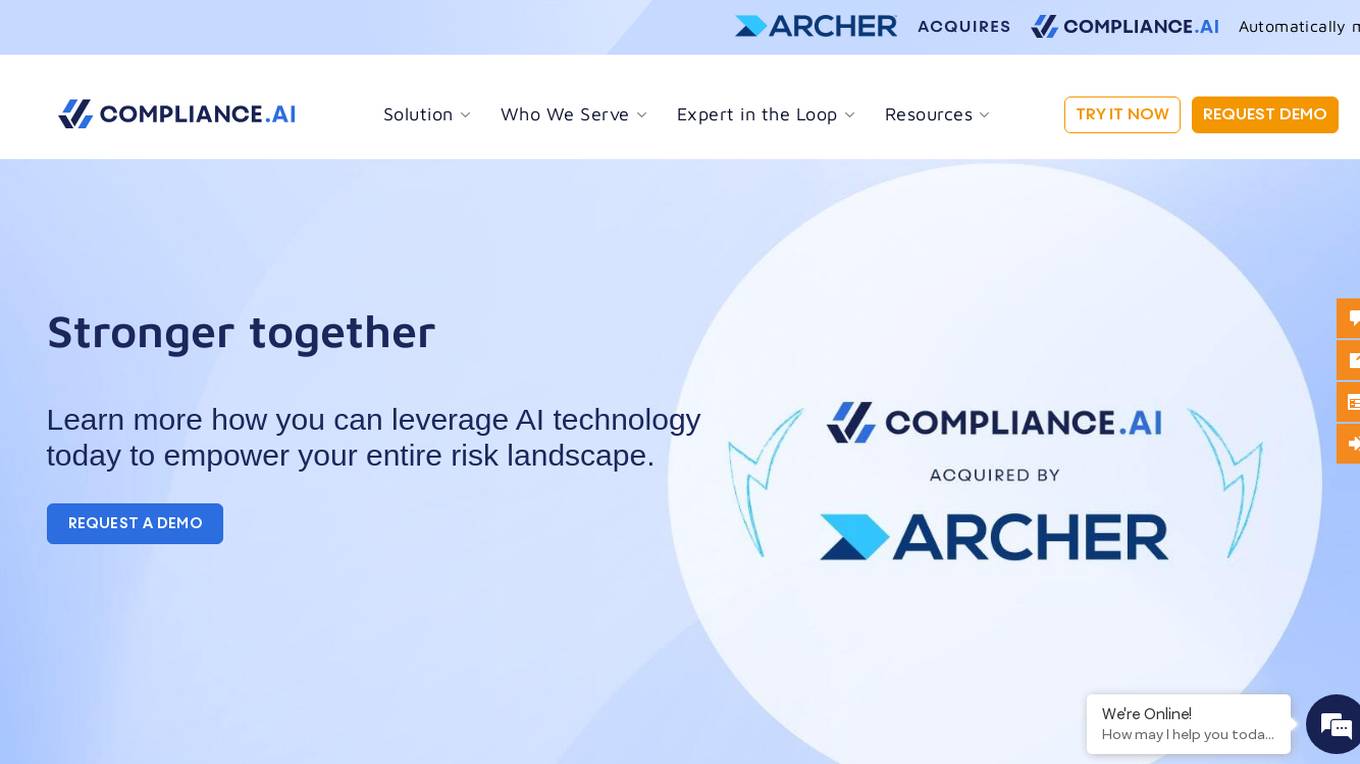
Compliance.ai
Compliance.ai is a regulatory compliance and risk management solution that leverages purpose-built machine learning models to automatically monitor regulatory updates and align them with internal policies, procedures, and controls. The platform ensures timely tracking, reaction, and reporting on impactful regulations and requirements, helping organizations mitigate risks, reduce costs, and increase confidence in compliance status. Compliance.ai offers a comprehensive suite of features and capabilities to streamline regulatory intelligence, impact analysis, change management, audit reporting, enforcement actions management, and more.
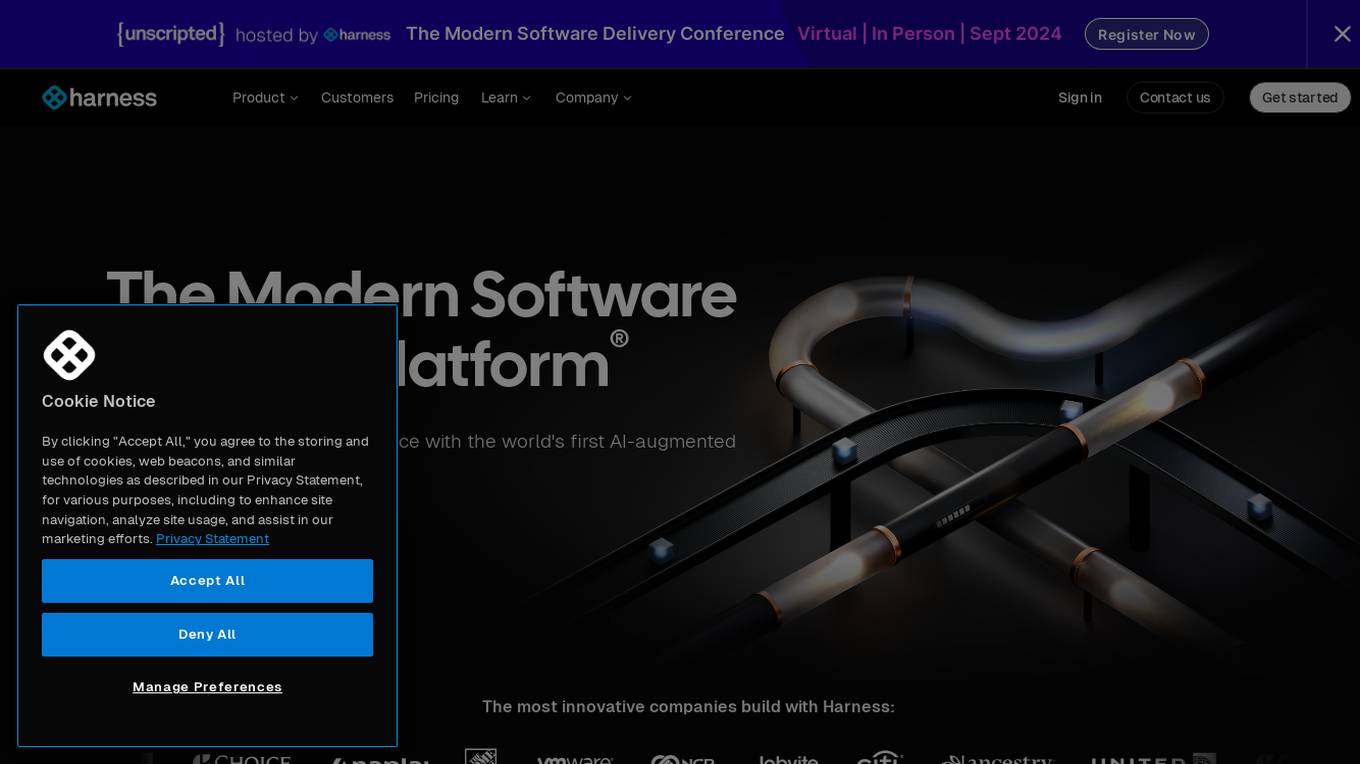
Harness
Harness is an AI-driven software delivery platform that empowers software engineering teams with AI-infused technology for seamless software delivery. It offers a single platform for all software delivery needs, including DevOps modernization, continuous delivery, GitOps, feature flags, infrastructure as code management, chaos engineering, service reliability management, secure software delivery, cloud cost optimization, and more. Harness aims to simplify the developer experience by providing actionable insights on SDLC, secure software supply chain assurance, and AI development assistance throughout the software delivery lifecycle.

Redirector
The website is a simple redirecting tool that automatically forwards users from one URL to another. It is commonly used to redirect visitors from an old webpage to a new one, or to direct traffic from one domain to another. The tool is straightforward and easy to use, requiring minimal setup and maintenance. It is a helpful solution for website owners looking to manage URL changes or consolidate multiple domains.
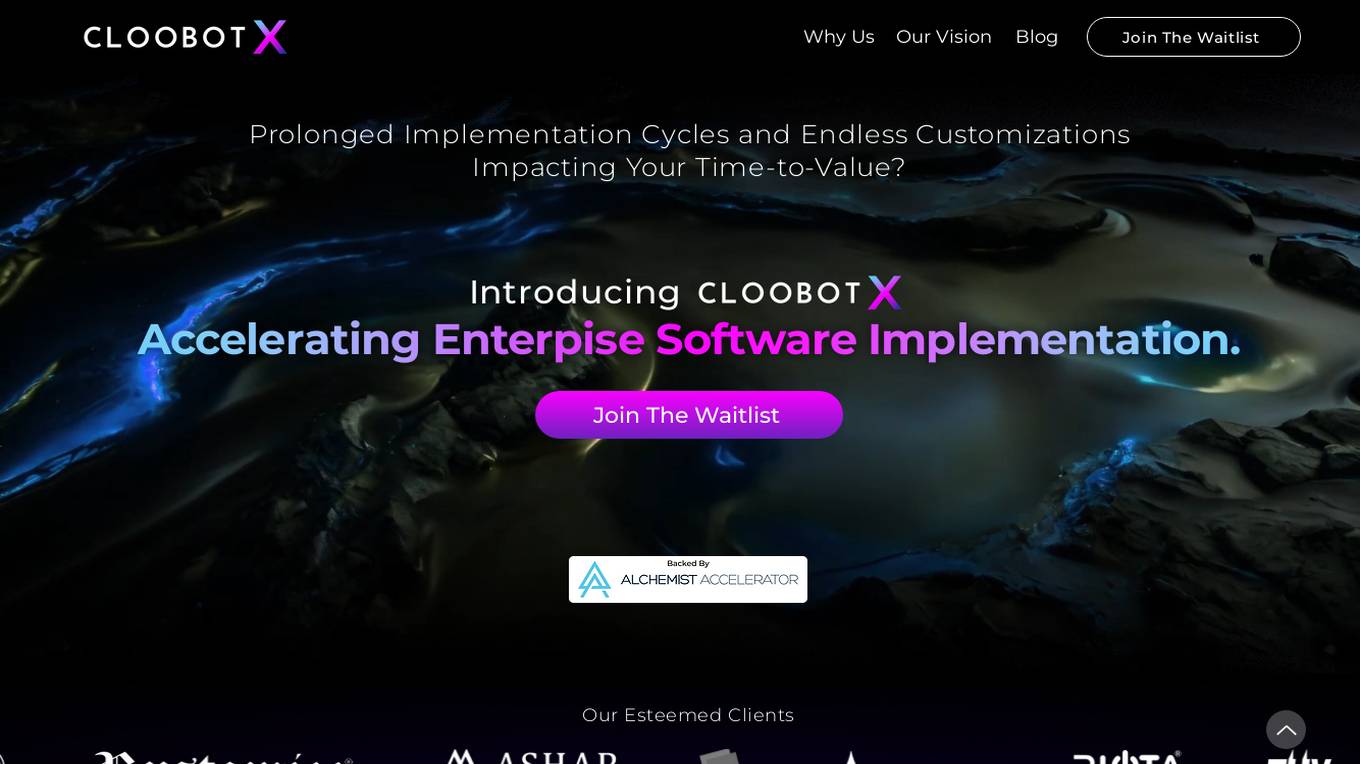
Cloobot X
Cloobot X is a Gen-AI-powered implementation studio that accelerates the deployment of enterprise applications with fewer resources. It leverages natural language processing to model workflow automation, deliver sandbox previews, configure workflows, extend functionalities, and manage versioning & changes. The platform aims to streamline enterprise application deployments, making them simple, swift, and efficient for all stakeholders.
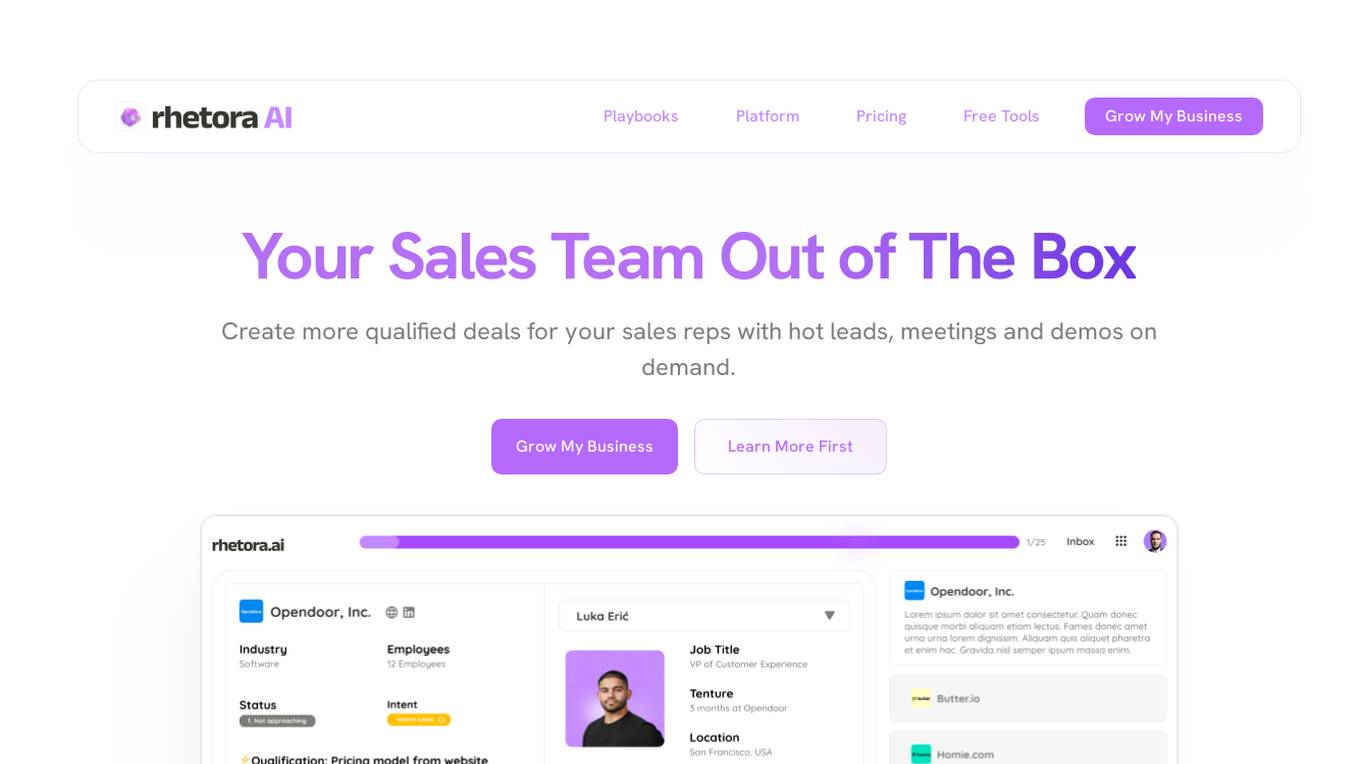
Rhetora AI
Rhetora AI is an AI-powered sales team playbook platform designed to help businesses generate consistent and qualified leads for their sales representatives. The platform leverages over 20 data providers and scrapes publicly available data sources to target ideal companies. Rhetora AI offers three different playbooks tailored for different needs, including founder-led, value-led, and signal-led playbooks. The platform also features smart engagement campaigns, AI-first CRM, and daily tasks execution managed by a combination of humans and AI.
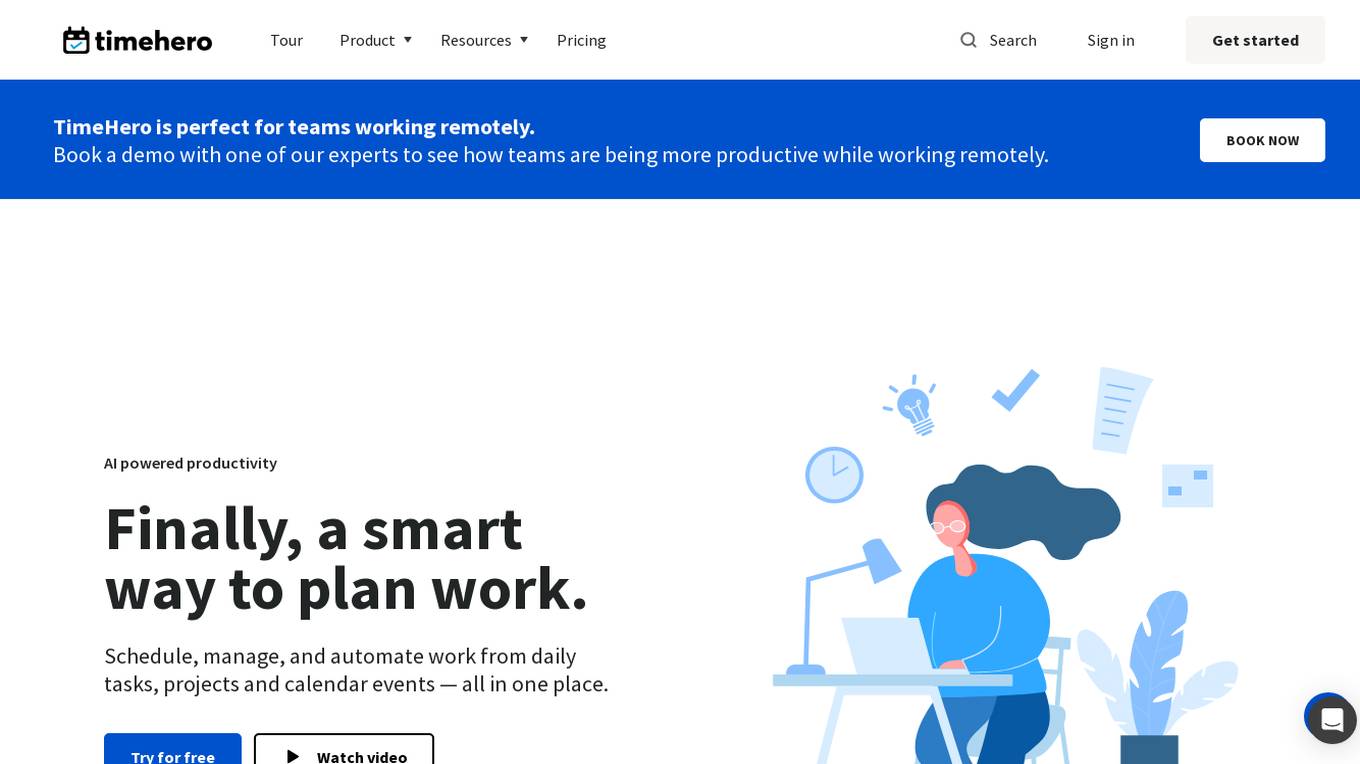
TimeHero
TimeHero is an AI-powered productivity tool that offers smart task planning and work management solutions for teams and individuals. It helps users schedule, manage, and automate daily tasks, projects, and calendar events in one centralized platform. TimeHero stands out by automatically planning when to work on tasks based on availability, adjusting plans instantly when events change, tasks are completed early, or priorities shift. With features like adaptive planning, autonomous recurring tasks, smart workflow templates, built-in time tracking, automatic risk detection, and project forecasting, TimeHero streamlines work processes and enhances productivity for remote and in-office teams alike.
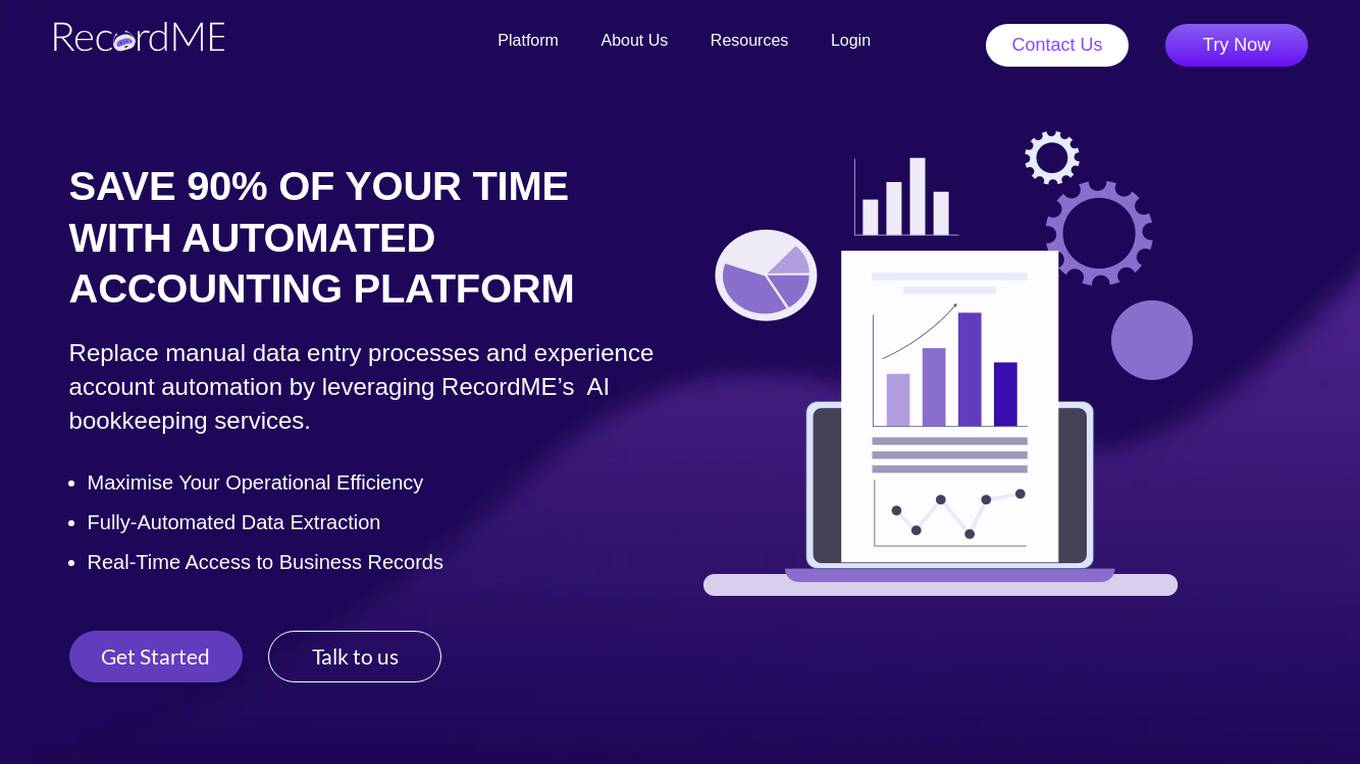
RecordMe
RecordMe is an AI-powered automated accounting and bookkeeping platform that offers fully automated data extraction, real-time access to business records, and streamlined invoice processing. The platform leverages OCR technology to extract and categorize accounting data efficiently, providing users with valuable data insights. RecordMe aims to maximize operational efficiency, eliminate manual data entry processes, and empower businesses to automate accounting and bookkeeping through a simple drag-and-drop process.

Evebyte Studio
Evebyte Studio is a Windows software that allows users to easily control physical Android phone devices with a graphical interface, without the need for coding. Users can create and manage tasks on their phones through their PC, enabling efficient management of multiple devices. The software ensures data security and grants users the right to use it. Evebyte Studio simplifies the process of building an AI phone assistant, making it accessible to all users.
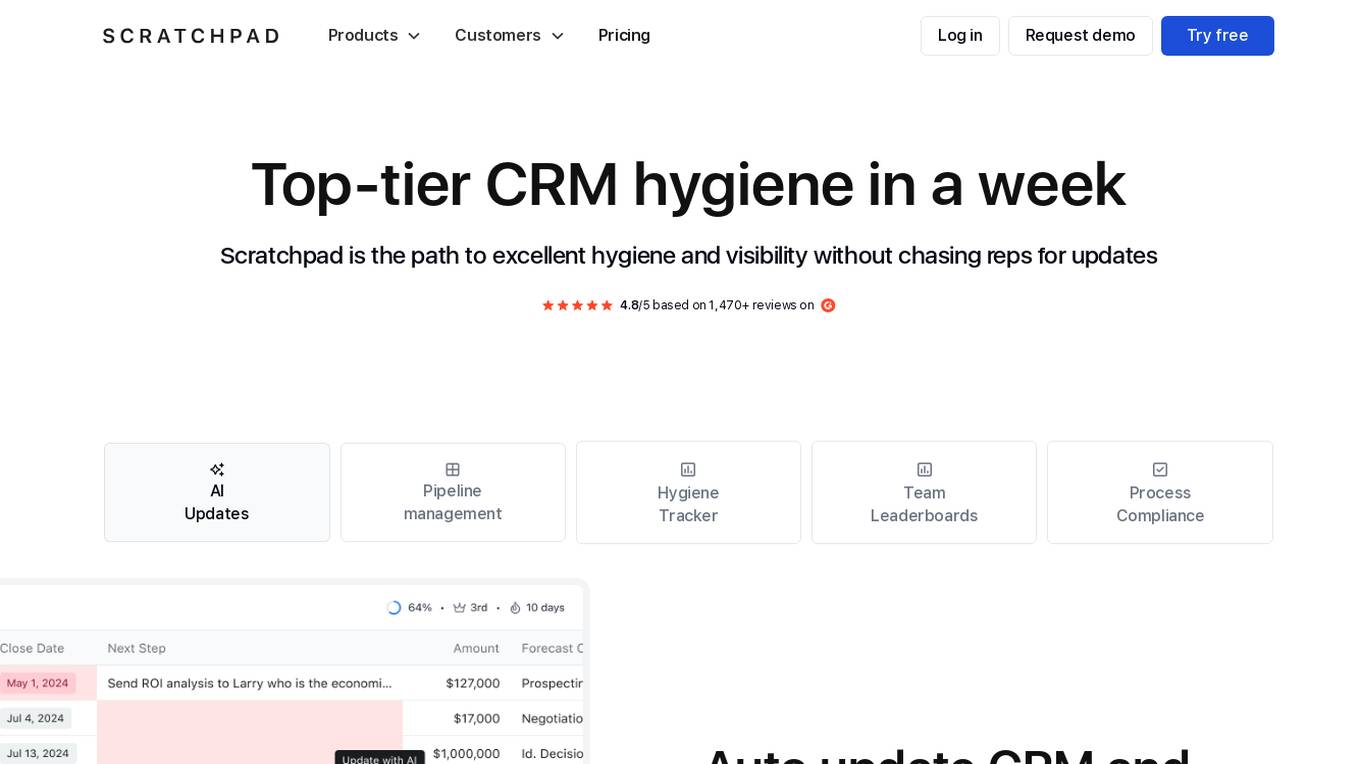
Scratchpad
Scratchpad is an AI-powered workspace designed for sales teams to streamline their sales processes and enhance productivity. It offers features such as AI Sales Assistant, Pipeline Management, Slack Deal Rooms, Automations & Enablement, Deal Inspection, and Sales Forecasting. With Scratchpad, sales teams can automate collaboration, improve Salesforce hygiene, track deal progress, and gain insights into deal movement and pipeline changes. The application aims to simplify sales workflows, provide real-time notes and call summaries, and enhance team collaboration for better performance and efficiency.
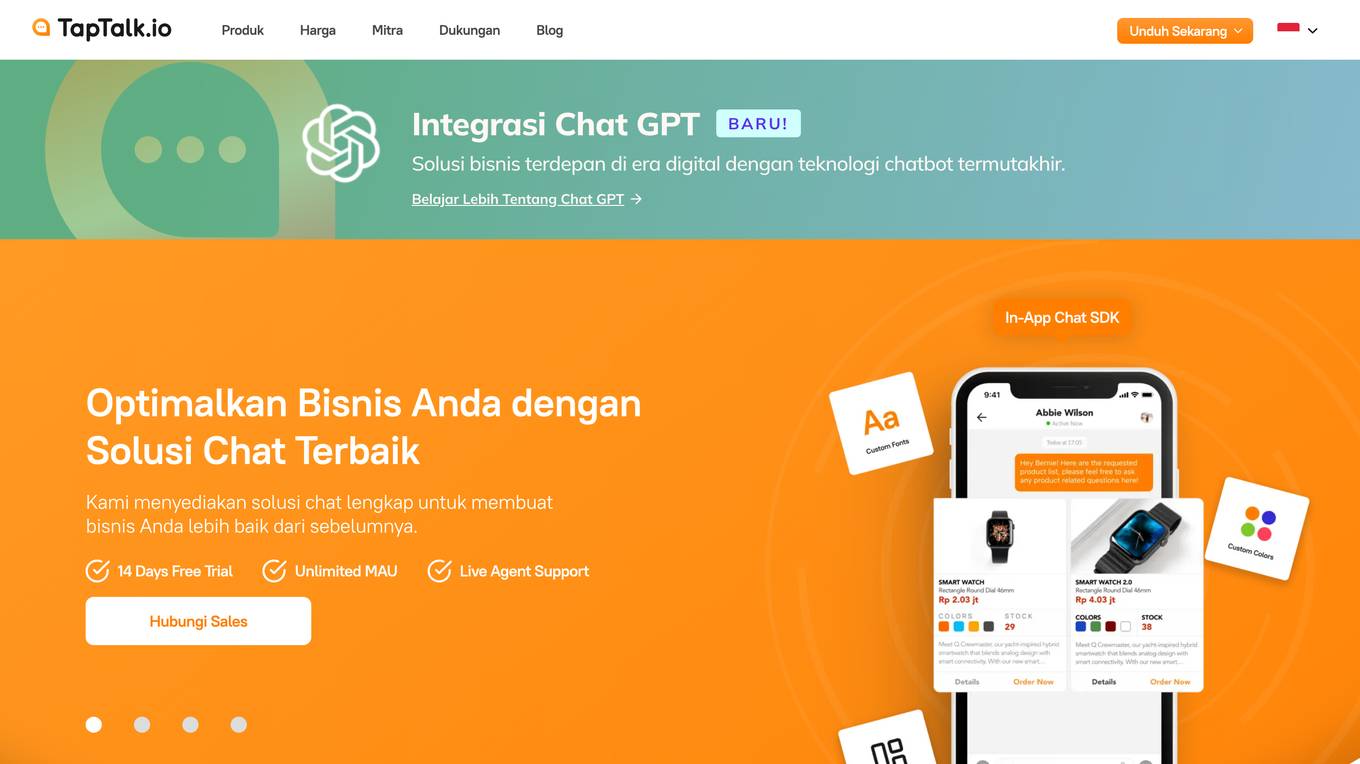
PT. Tap Talk Teknologi
PT. Tap Talk Teknologi provides complete chat solutions that can change your business for the better. Their chat solutions are complete, secure, and affordable, and can help you fulfill your business and customer chat needs. With Tap Talk, you can manage customer chat efficiently and create the best customer experience. Their featured products include Omnichannel, In-App Chat SDK, OTP via WhatsApp, and Social Commerce.
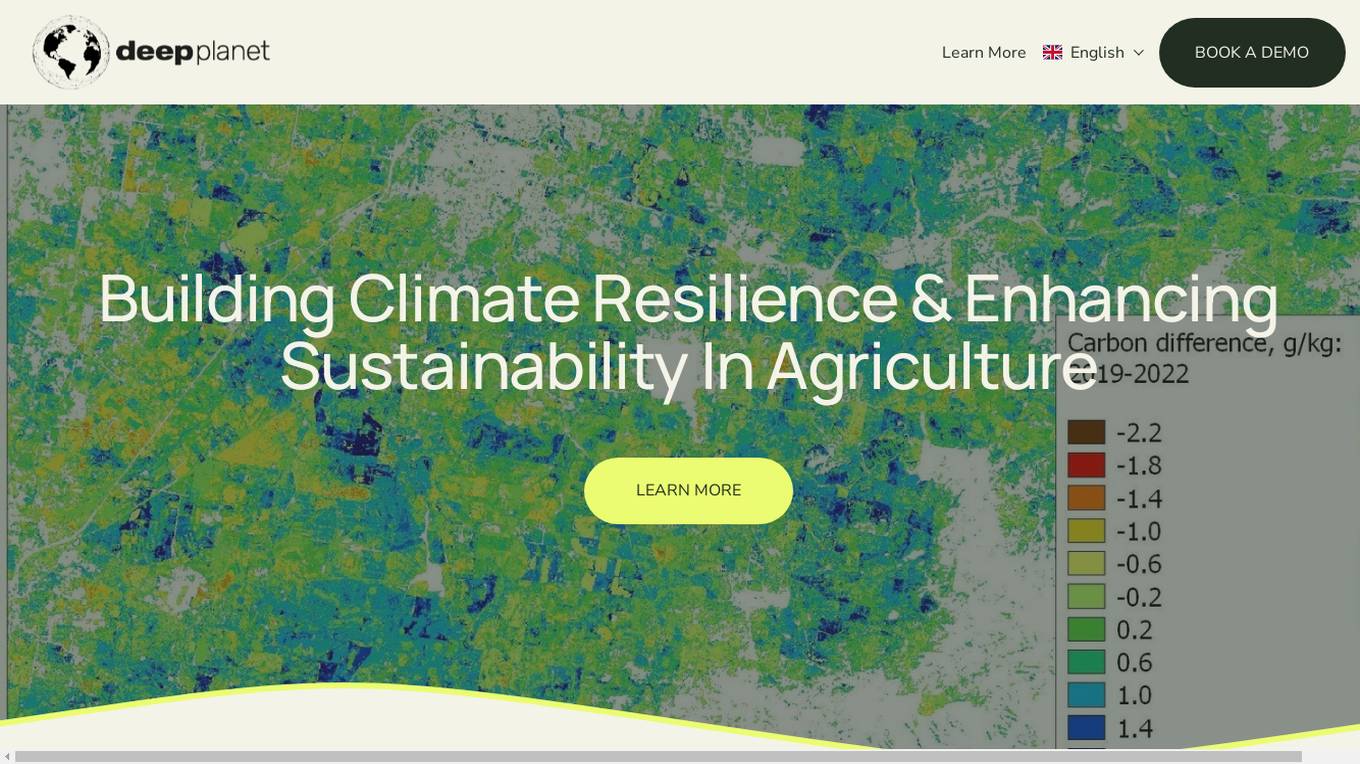
Deep Planet
Deep Planet is a precision viticulture platform powered by AI that focuses on enhancing sustainability in agriculture. It offers solutions for the wine industry, landowners, farmers, and supply chain companies by providing data-driven insights to maximize potential, optimize nutrient application, and support the transition to achieve net zero targets. The platform leverages AI and satellite imagery to empower users with actionable intelligence for better decision-making in vineyard management and soil health.
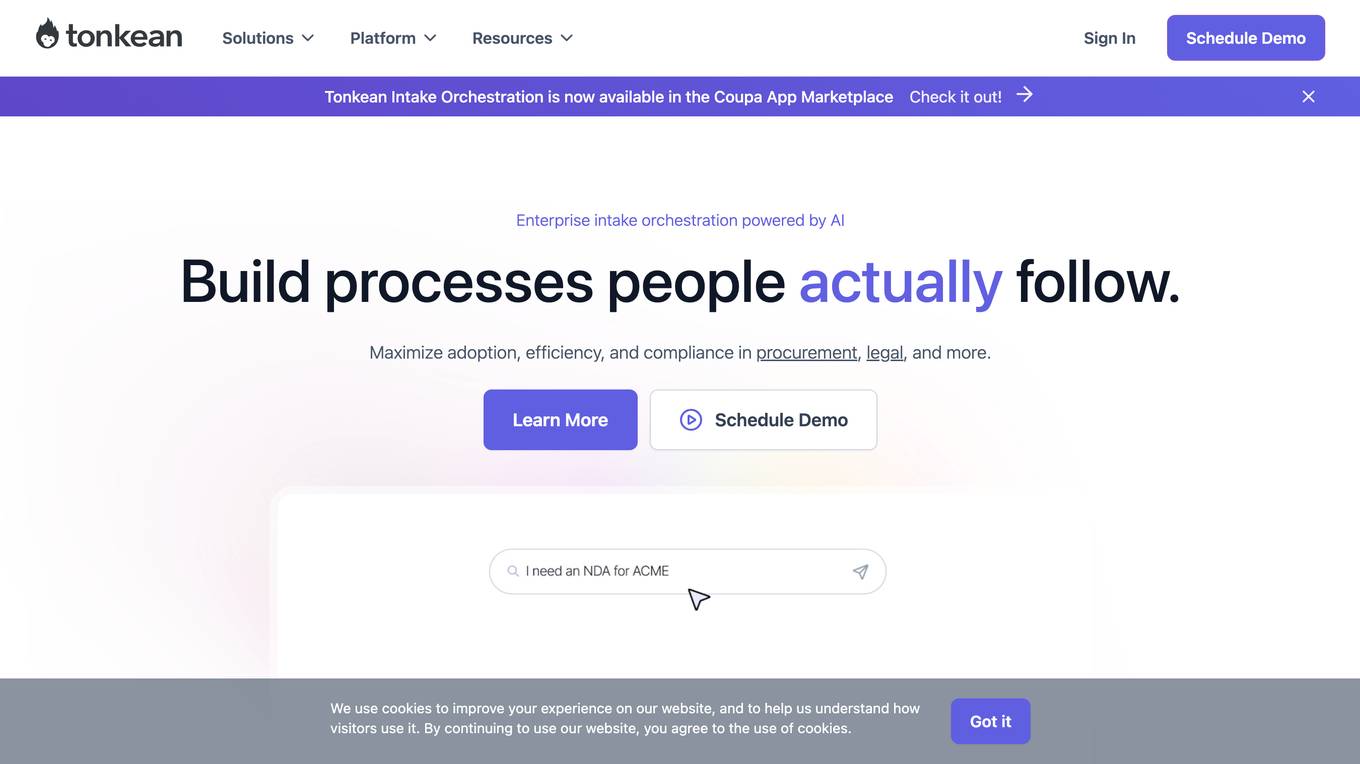
Tonkean
Tonkean is an enterprise intake orchestration platform powered by AI. It helps businesses automate and streamline their intake processes, such as procurement, legal, and more. Tonkean's AI-powered features include an intelligent AI Front Door, guided intake, request status tracker, and custom apps for ops teams. With Tonkean, businesses can increase adoption, efficiency, and compliance in their intake processes.
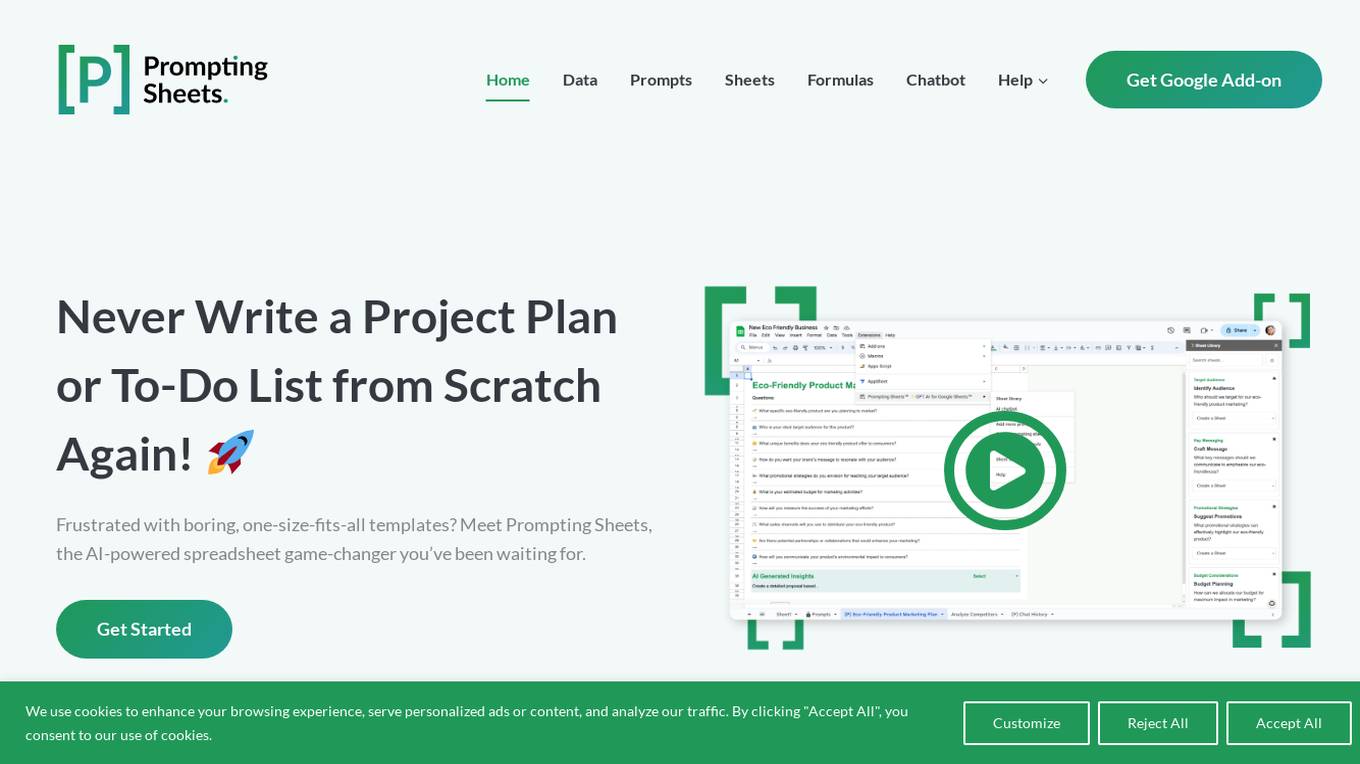
Prompting Sheets
Prompting Sheets is an AI-powered spreadsheet add-on for Google Sheets that revolutionizes project planning and task management. It offers customizable project plans and to-do lists tailored to individual business needs, streamlining workflows and boosting productivity. With features like AI Chatbot, customizable prompts, and prompt optimization, Prompting Sheets simplifies complex tasks, automates processes, and enhances user experience. The application leverages AI capabilities for data analysis and content creation, providing real-time data queries and dynamic solutions directly within Google Sheets.
0 - Open Source AI Tools
20 - OpenAI Gpts
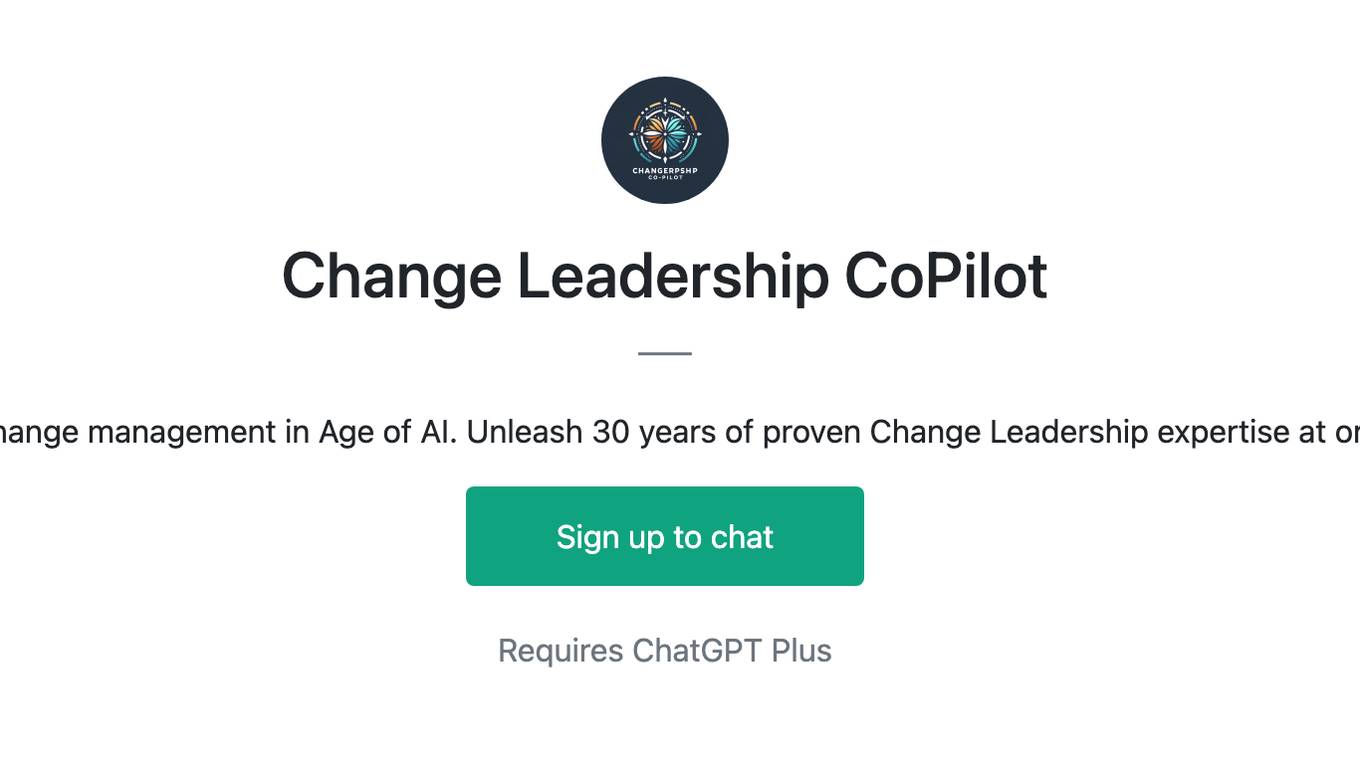
Change Leadership CoPilot
Master organizational change management in Age of AI. Unleash 30 years of proven Change Leadership expertise at orgz's around the world
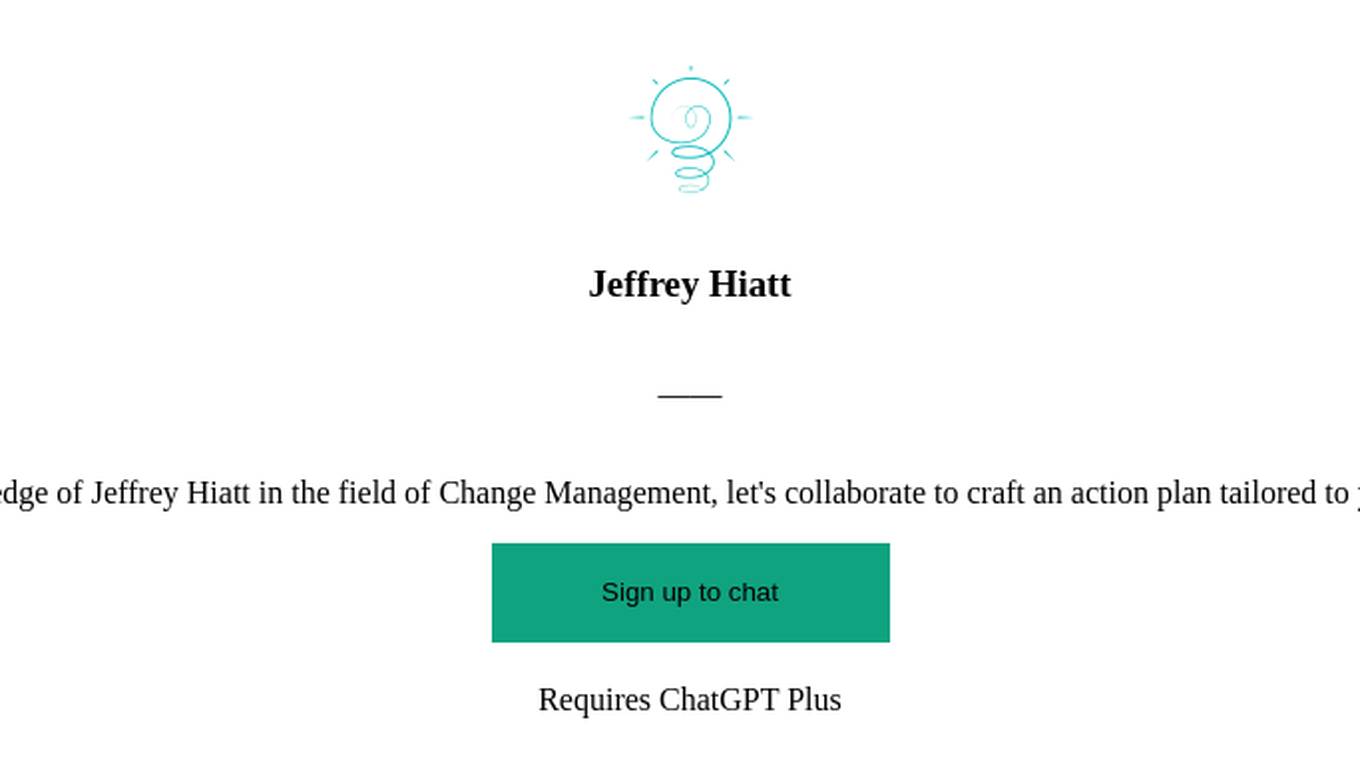
Jeffrey Hiatt
Drawing upon the extensive knowledge of Jeffrey Hiatt in the field of Change Management, let's collaborate to craft an action plan tailored to your current project. BRAWT.com.au
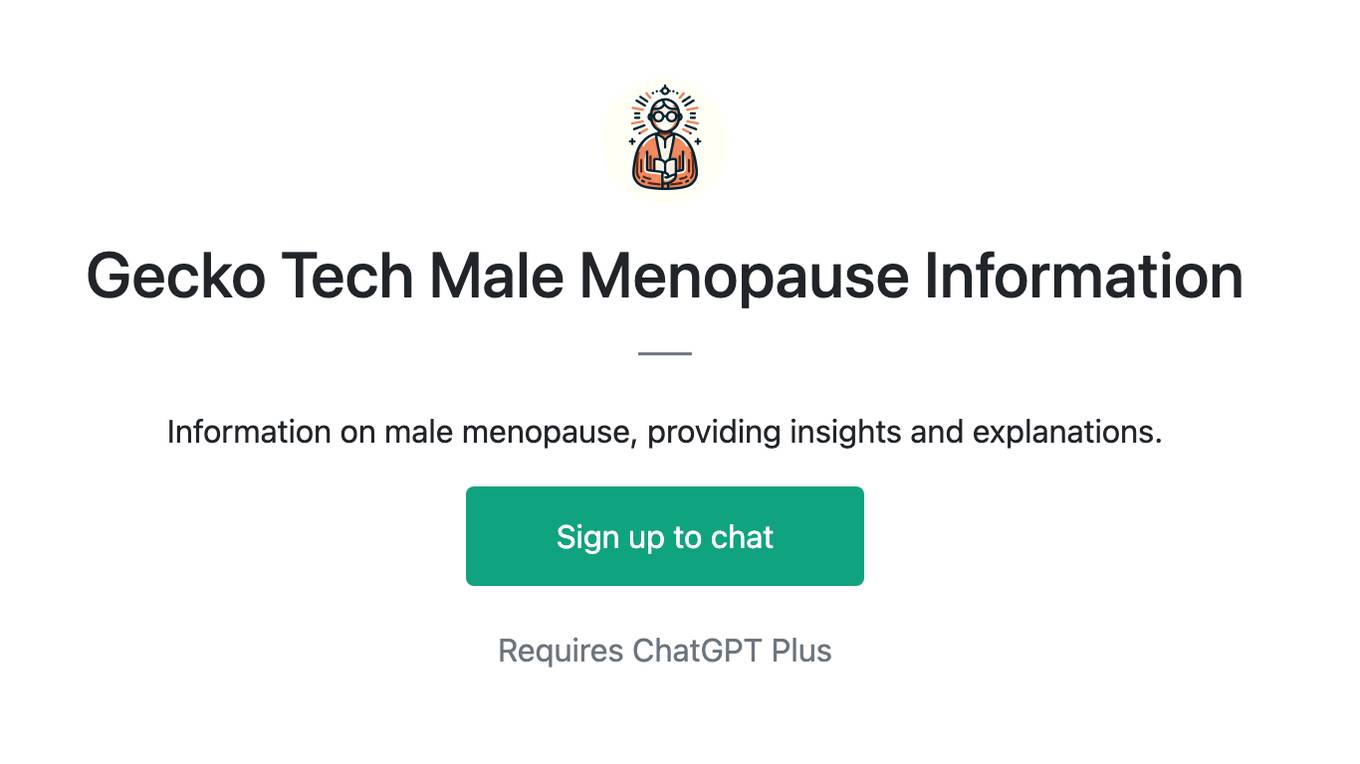
Gecko Tech Male Menopause Information
Information on male menopause, providing insights and explanations.

Lead Change Like a Gardener
Explore my book 'Gardeners not Mechanics: How to Cultivate Change at Work"'
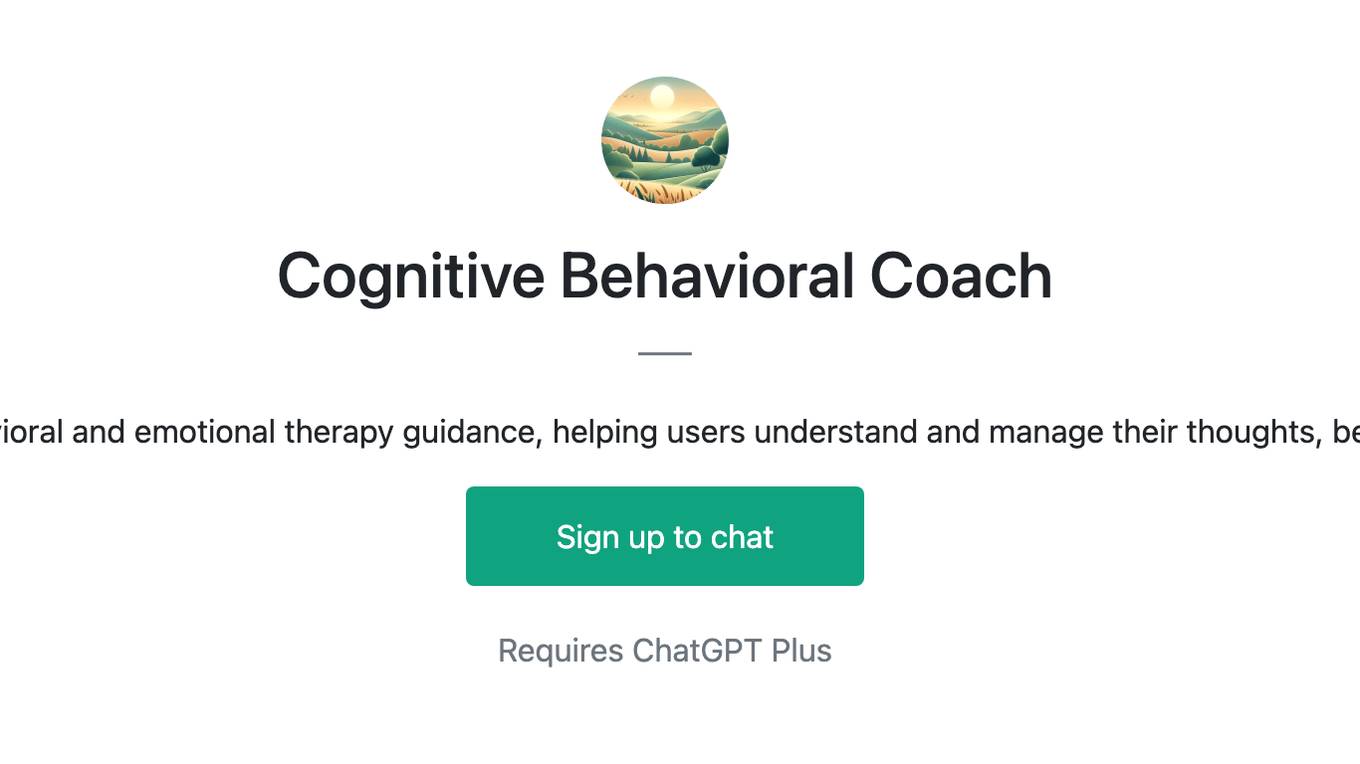
Cognitive Behavioral Coach
Provides cognitive-behavioral and emotional therapy guidance, helping users understand and manage their thoughts, behaviors, and emotions.
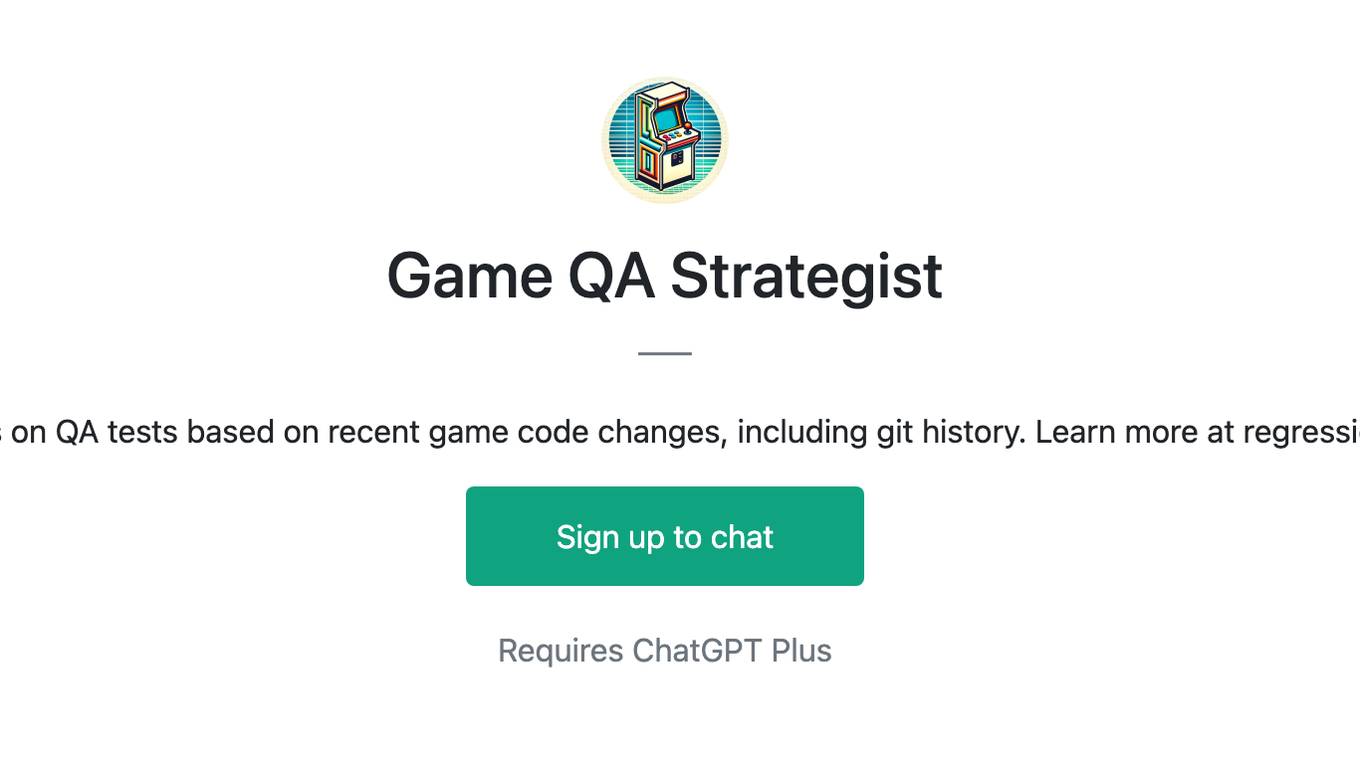
Game QA Strategist
Advises on QA tests based on recent game code changes, including git history. Learn more at regression.gg
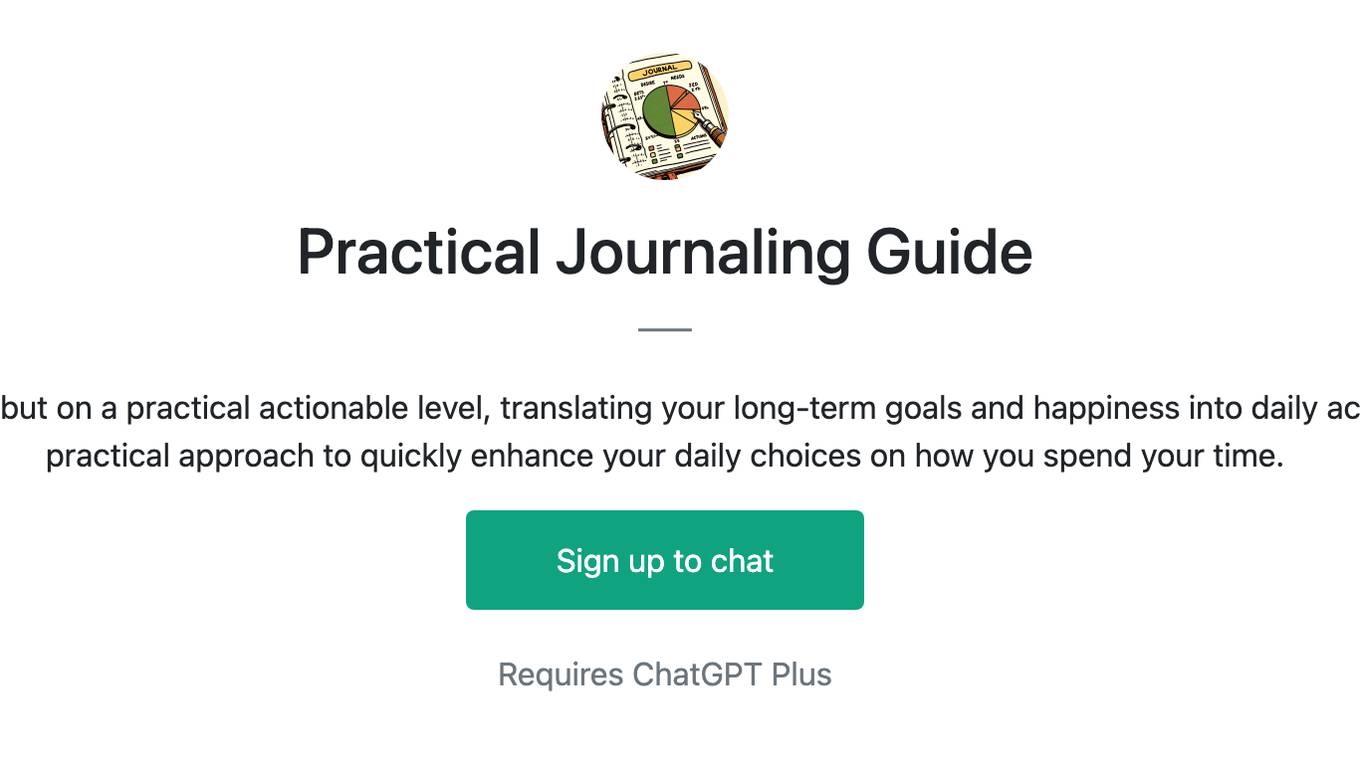
Practical Journaling Guide
Reflective journaling and time management, but on a practical actionable level, translating your long-term goals and happiness into daily actionable changes. No theoretical stuff, just practical approach to quickly enhance your daily choices on how you spend your time.
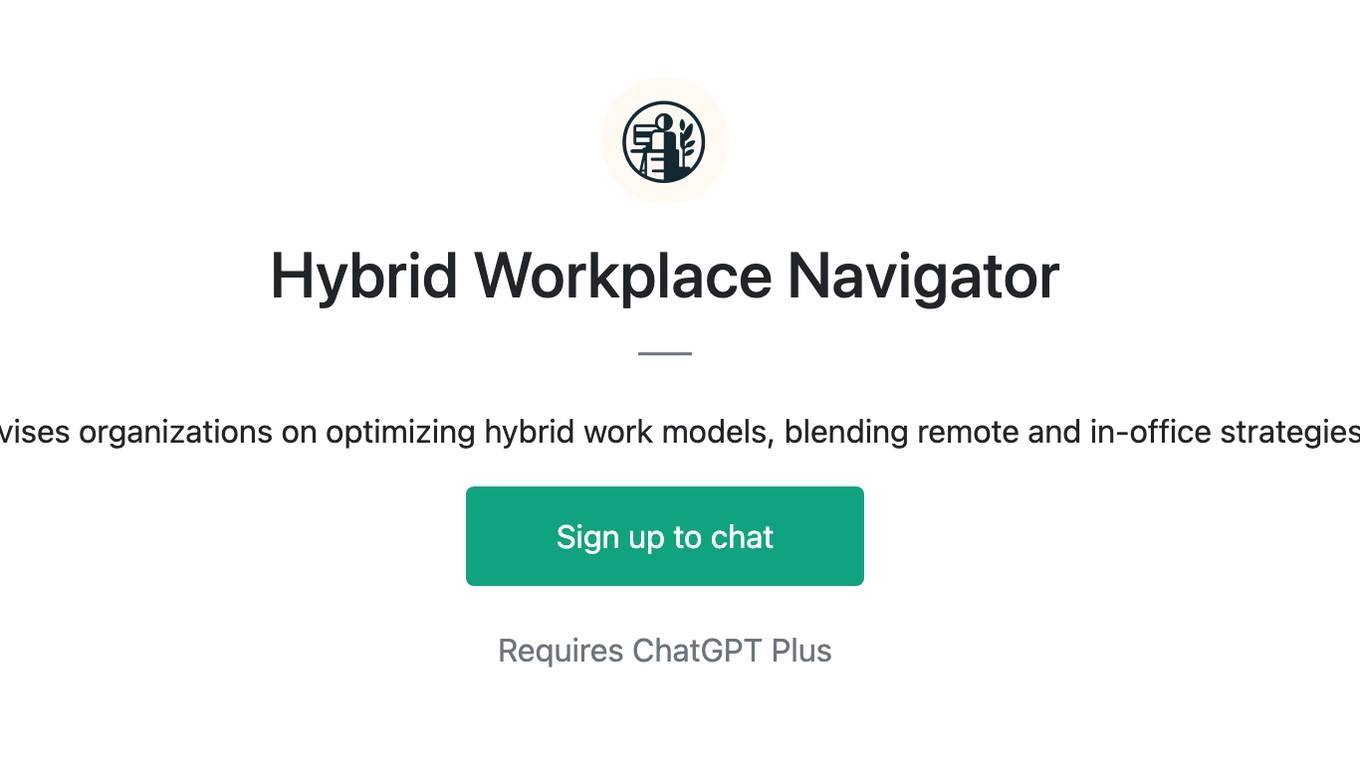
Hybrid Workplace Navigator
Advises organizations on optimizing hybrid work models, blending remote and in-office strategies.
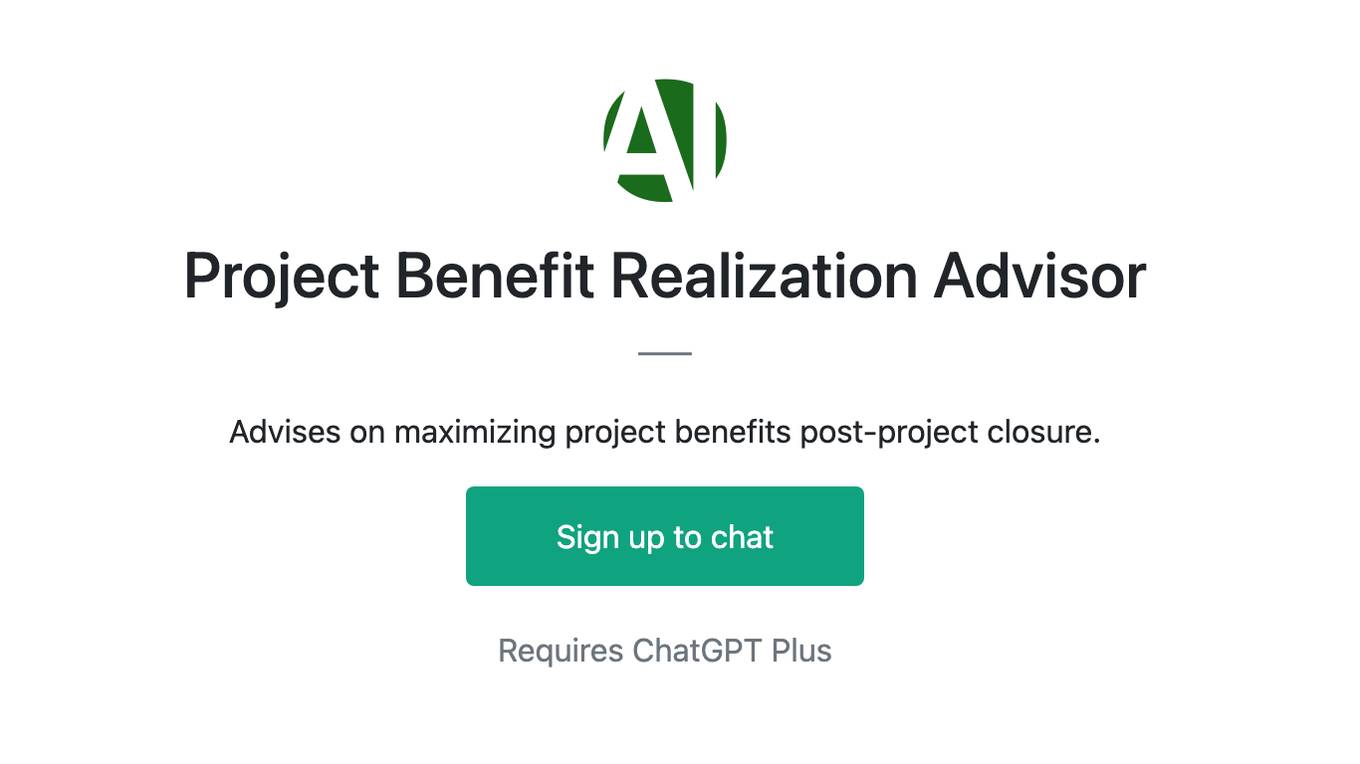
Project Benefit Realization Advisor
Advises on maximizing project benefits post-project closure.
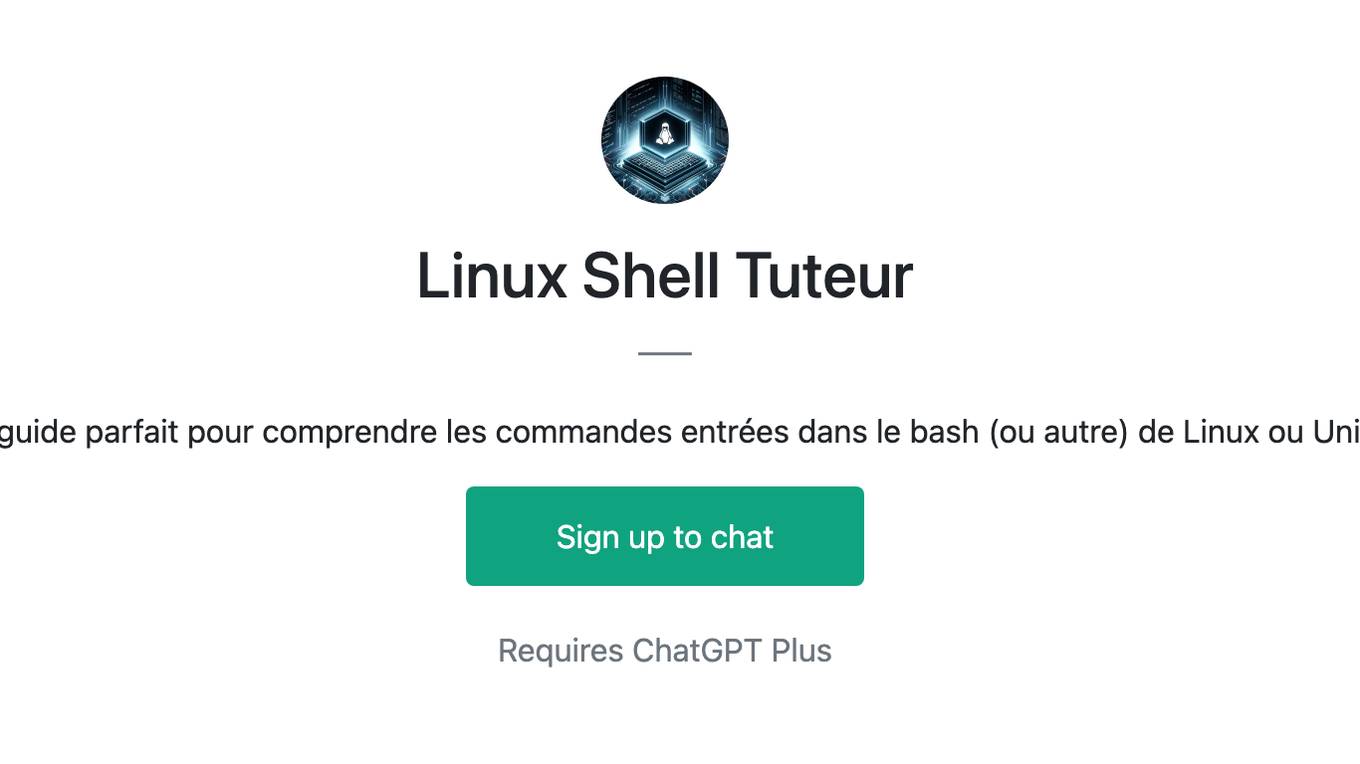
Linux Shell Tuteur
Le guide parfait pour comprendre les commandes entrées dans le bash (ou autre) de Linux ou Unix

